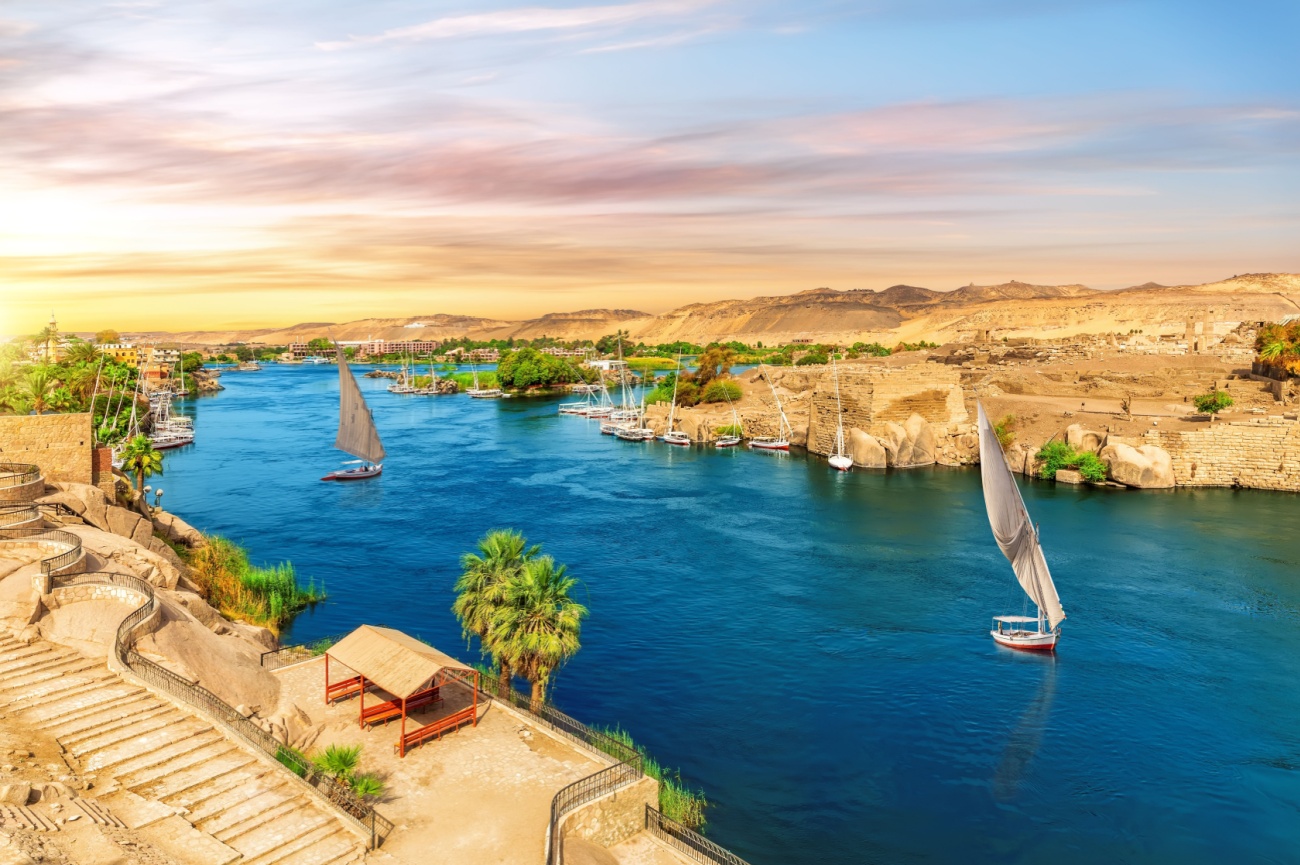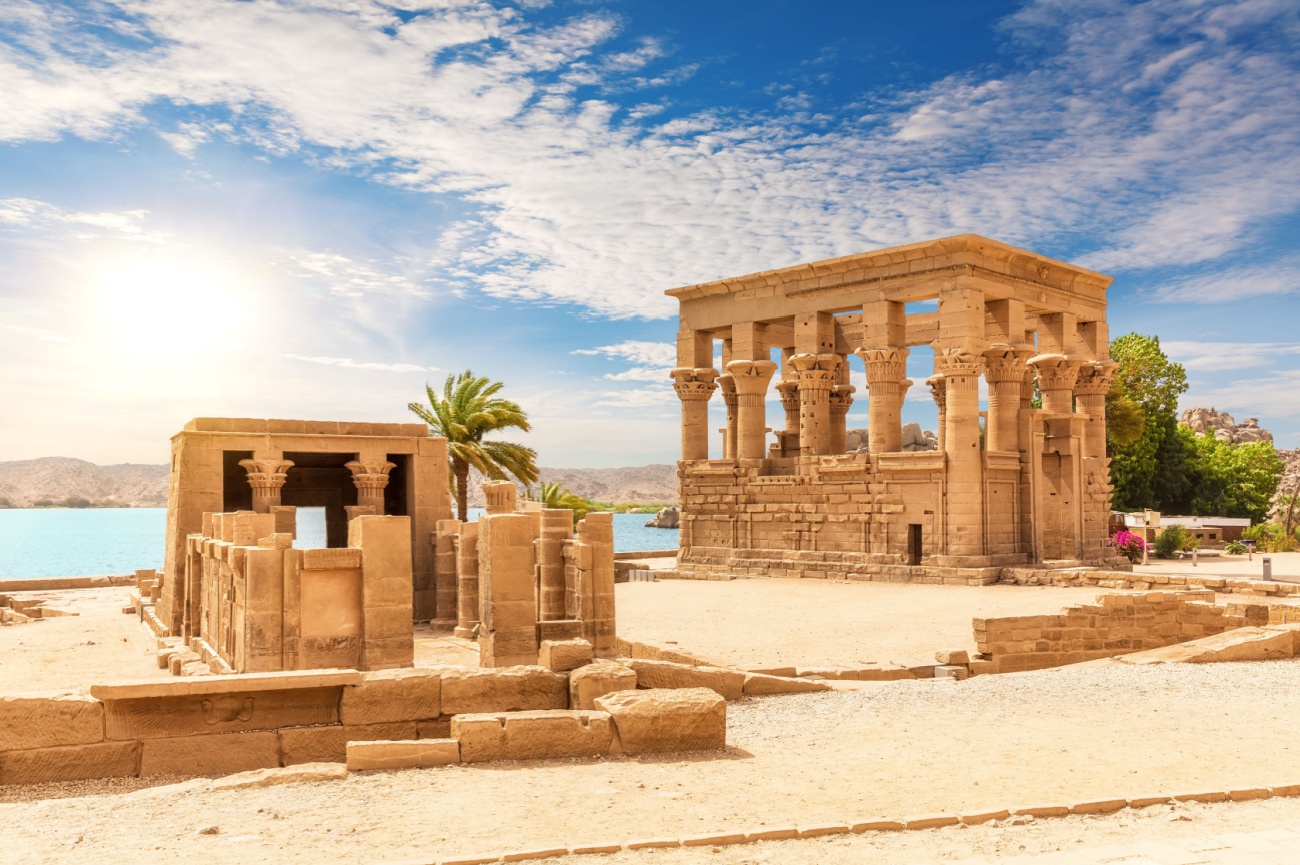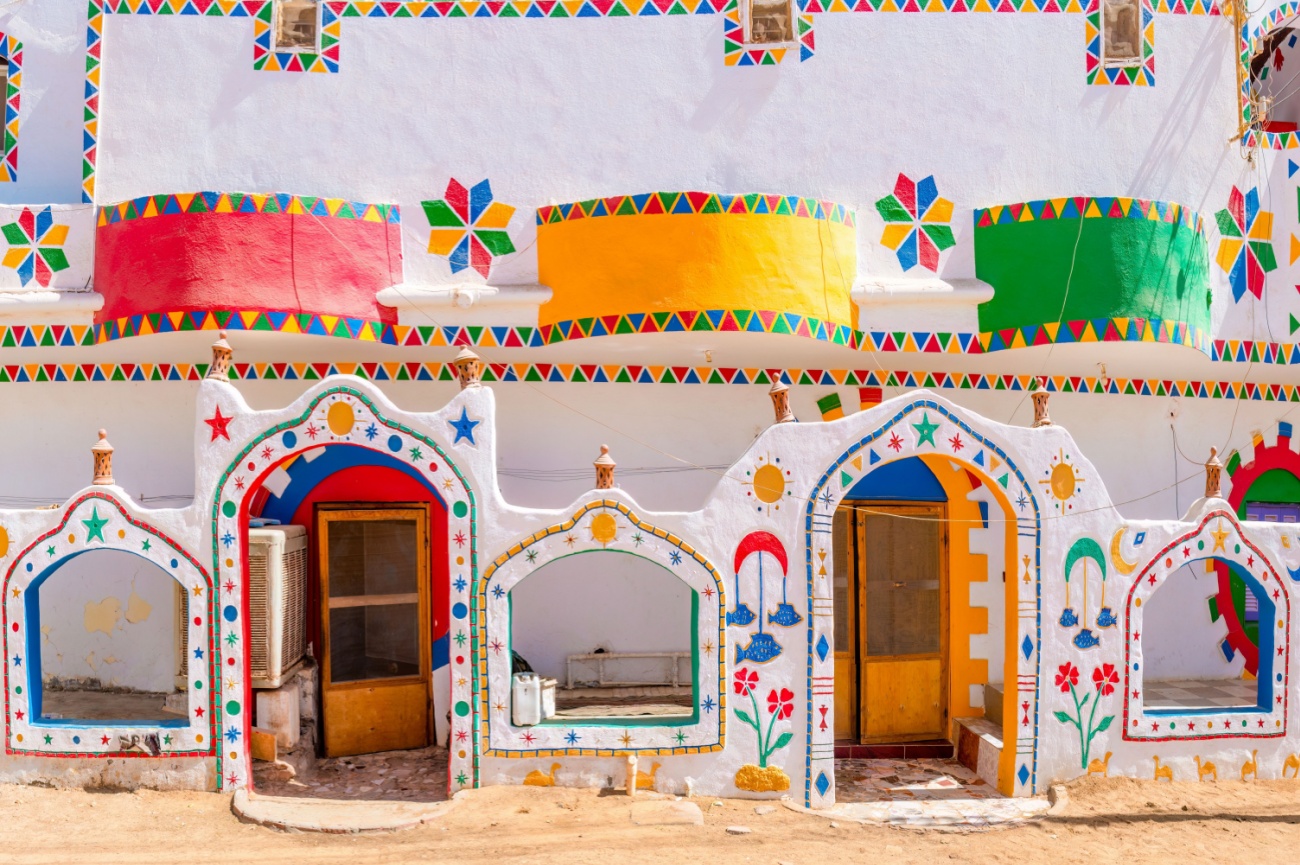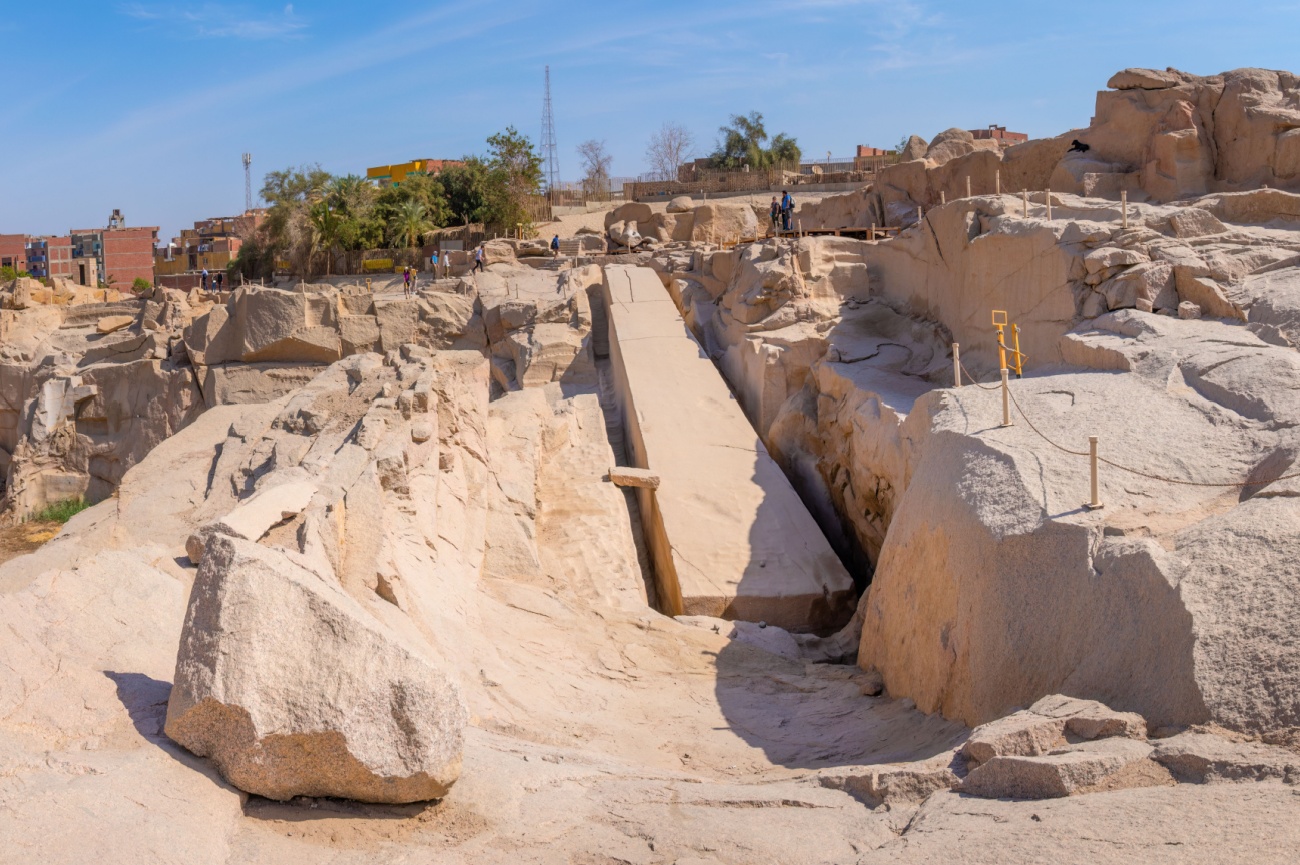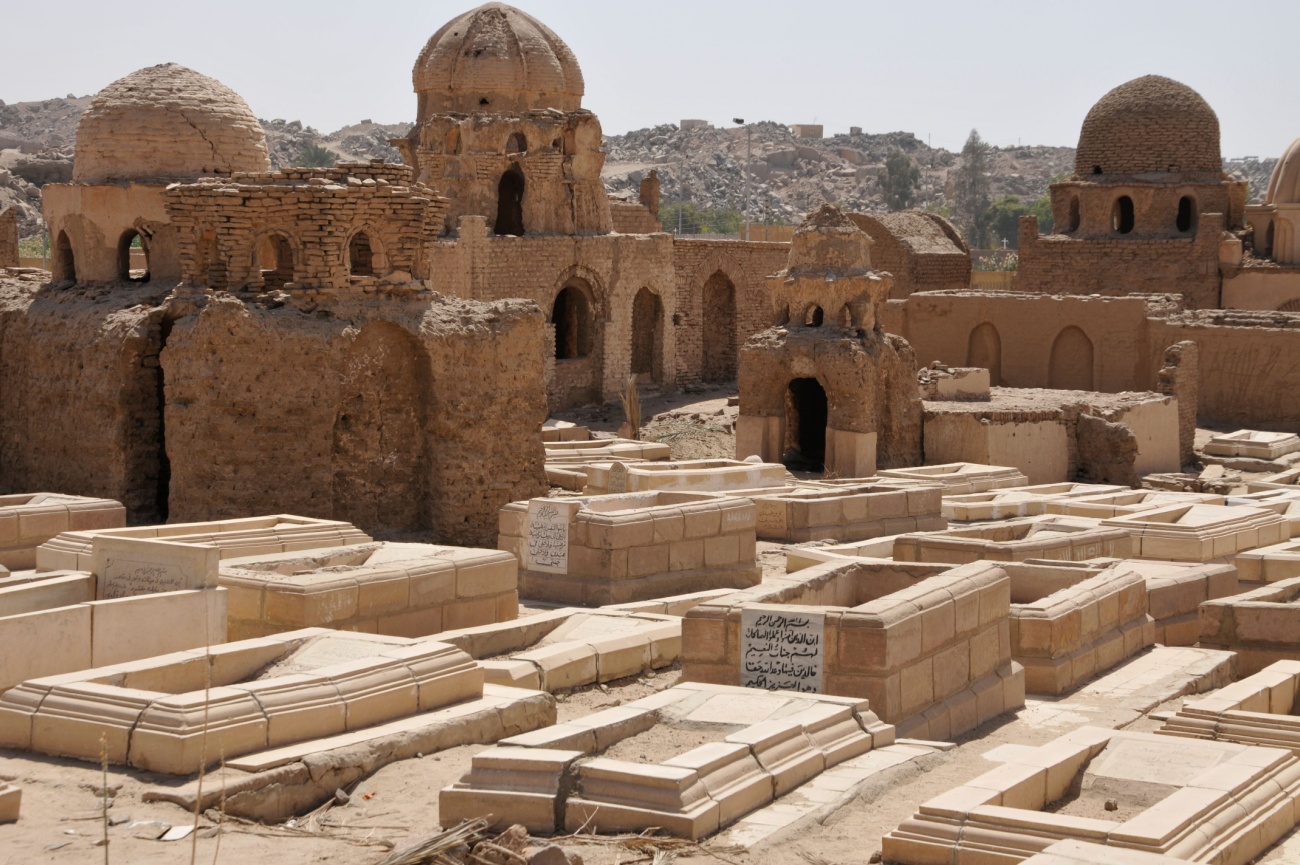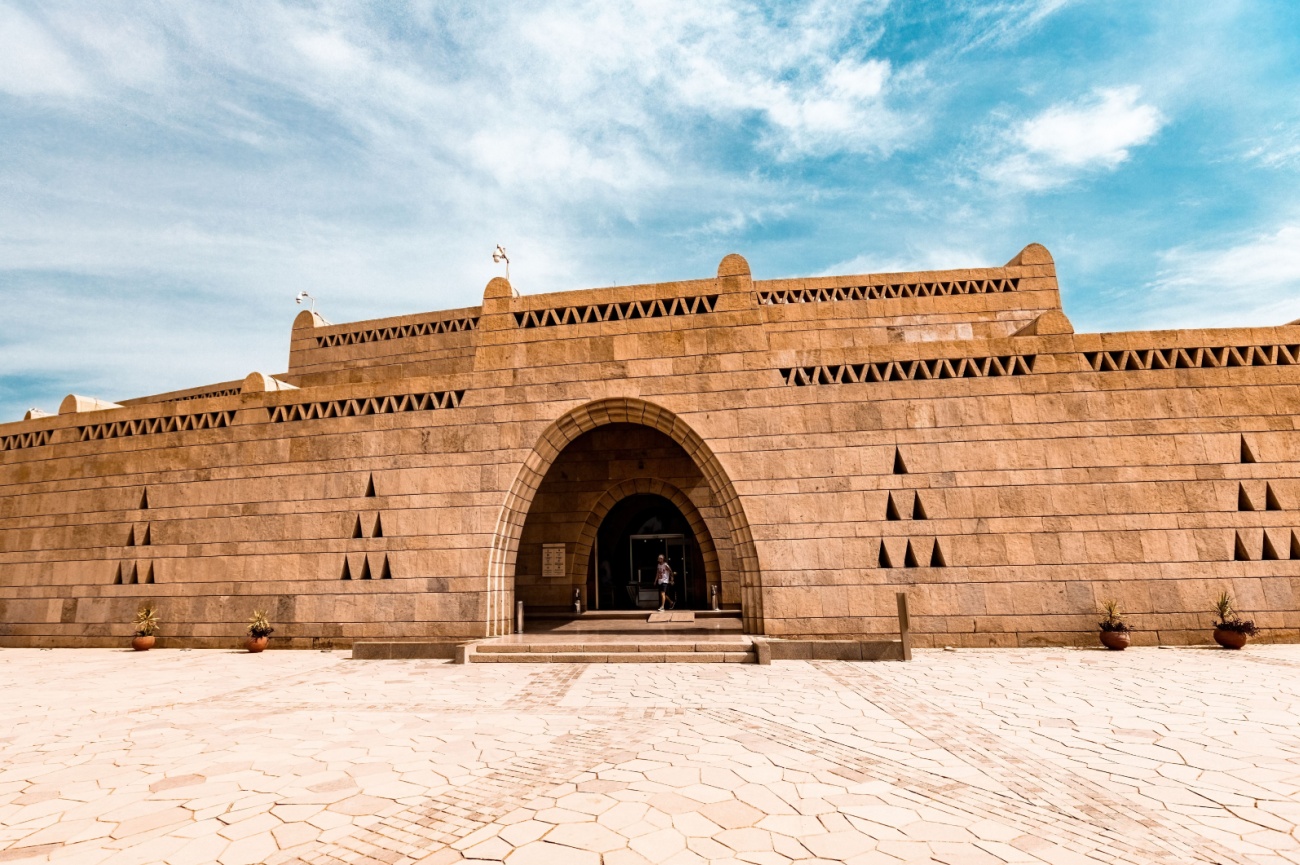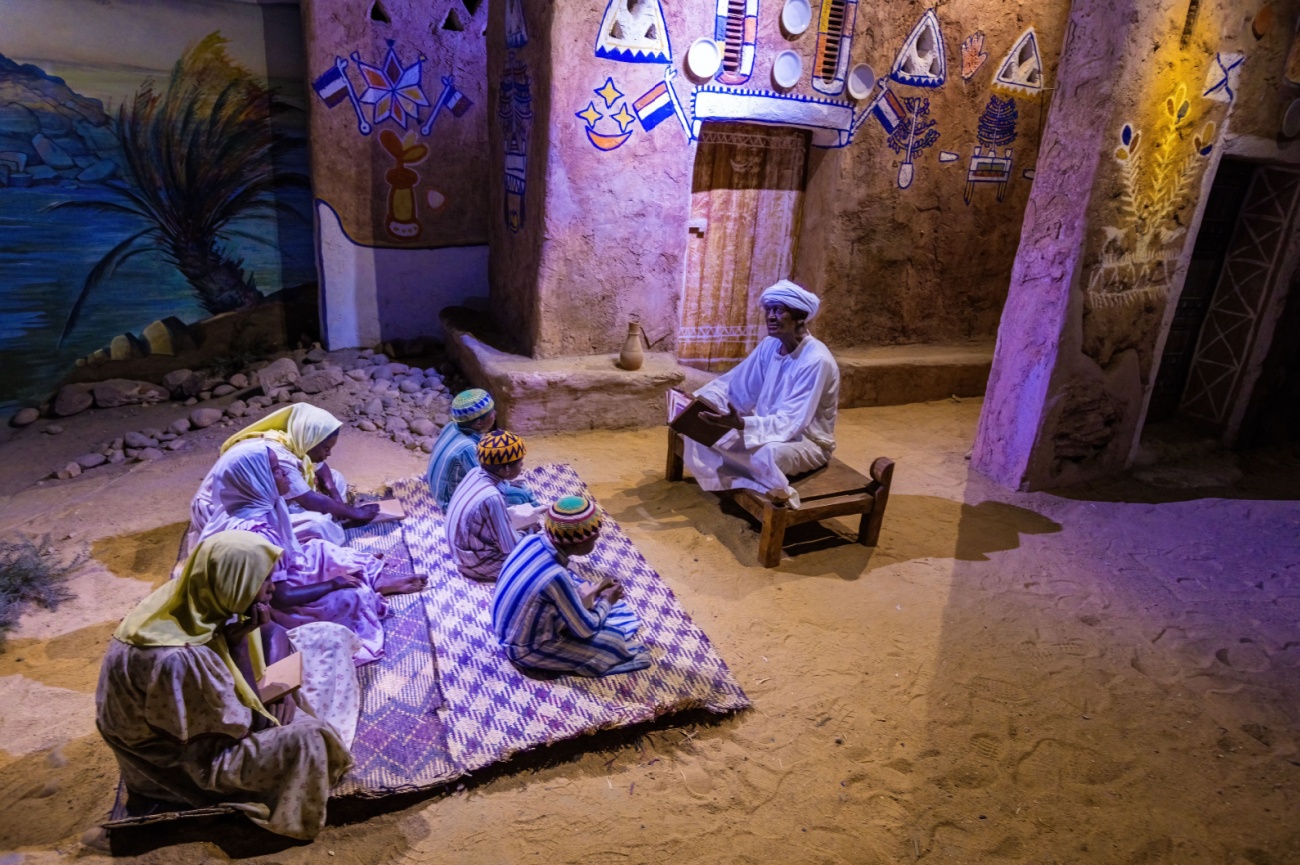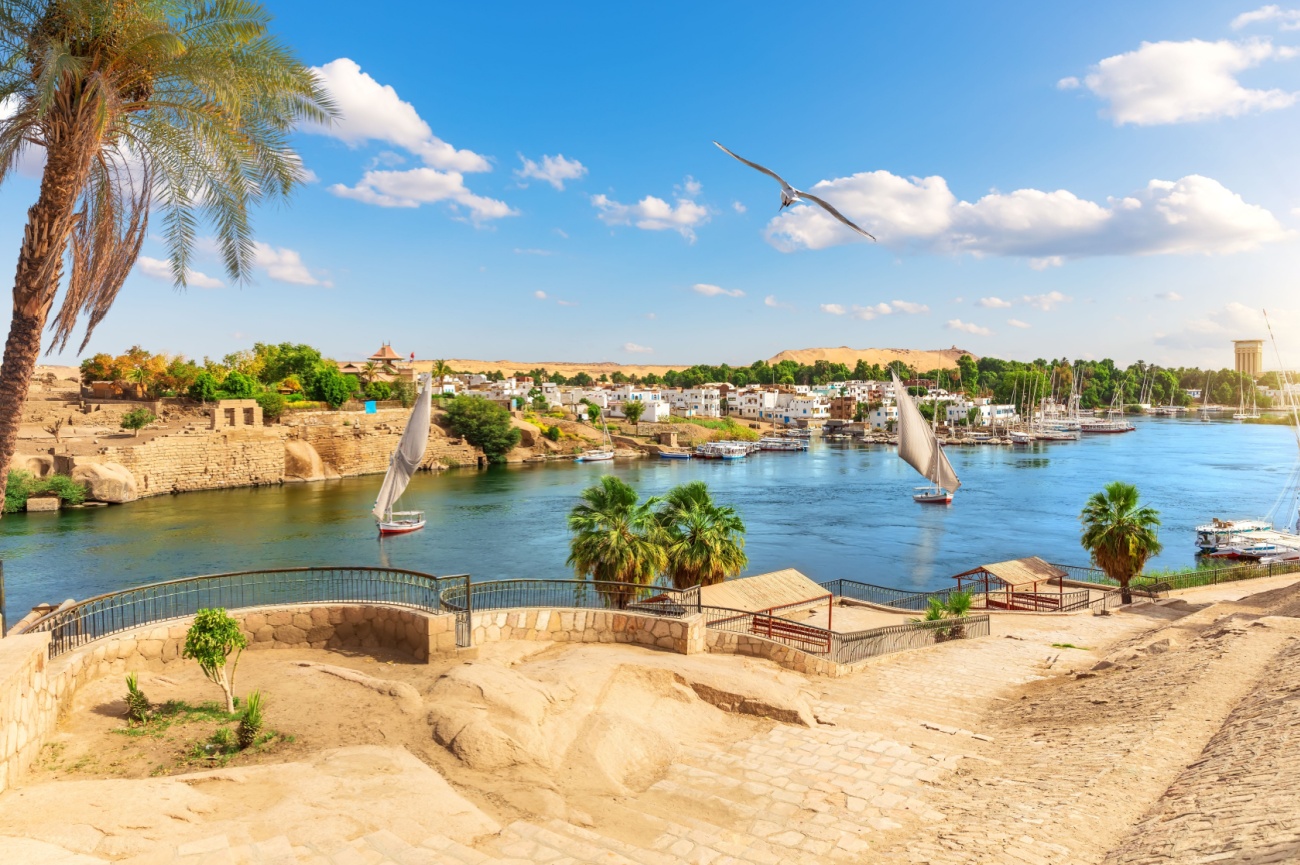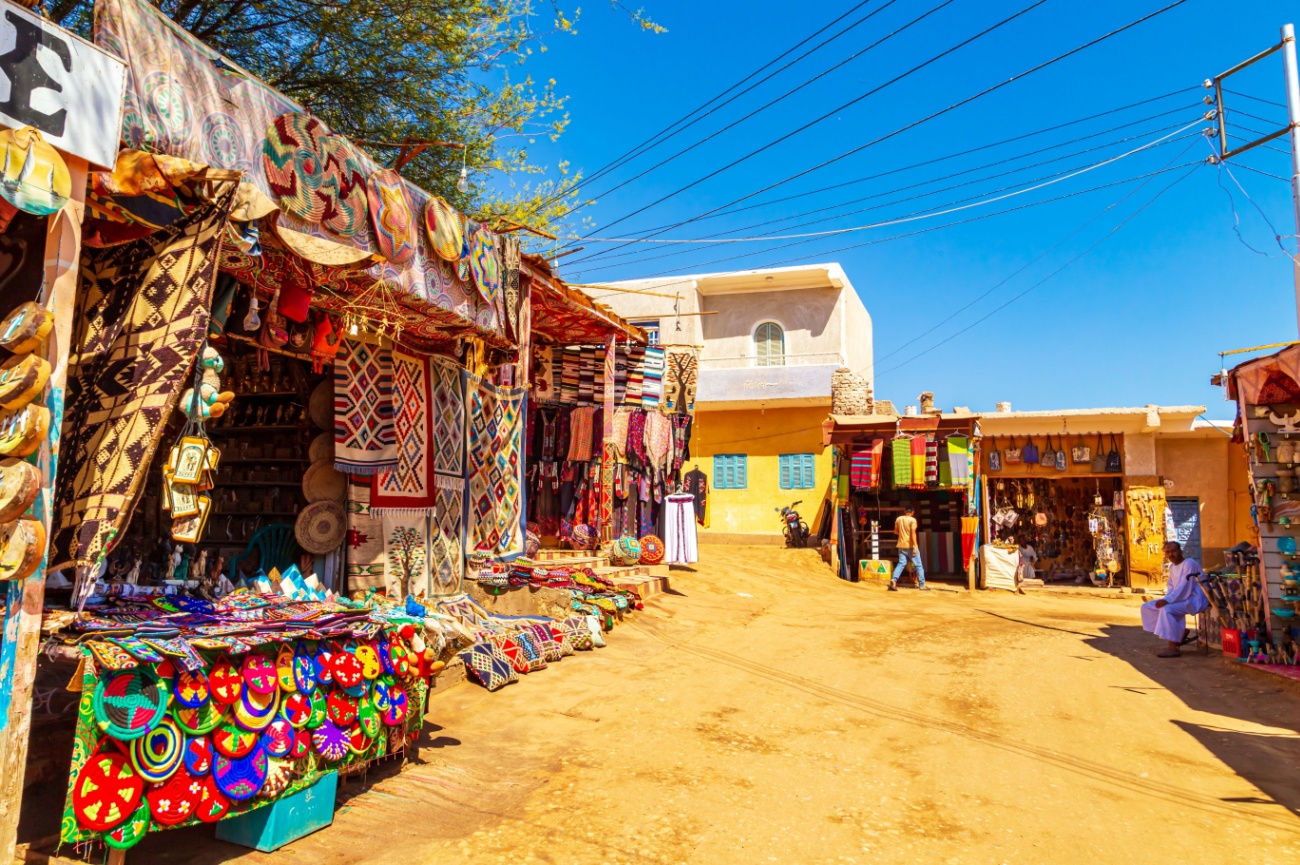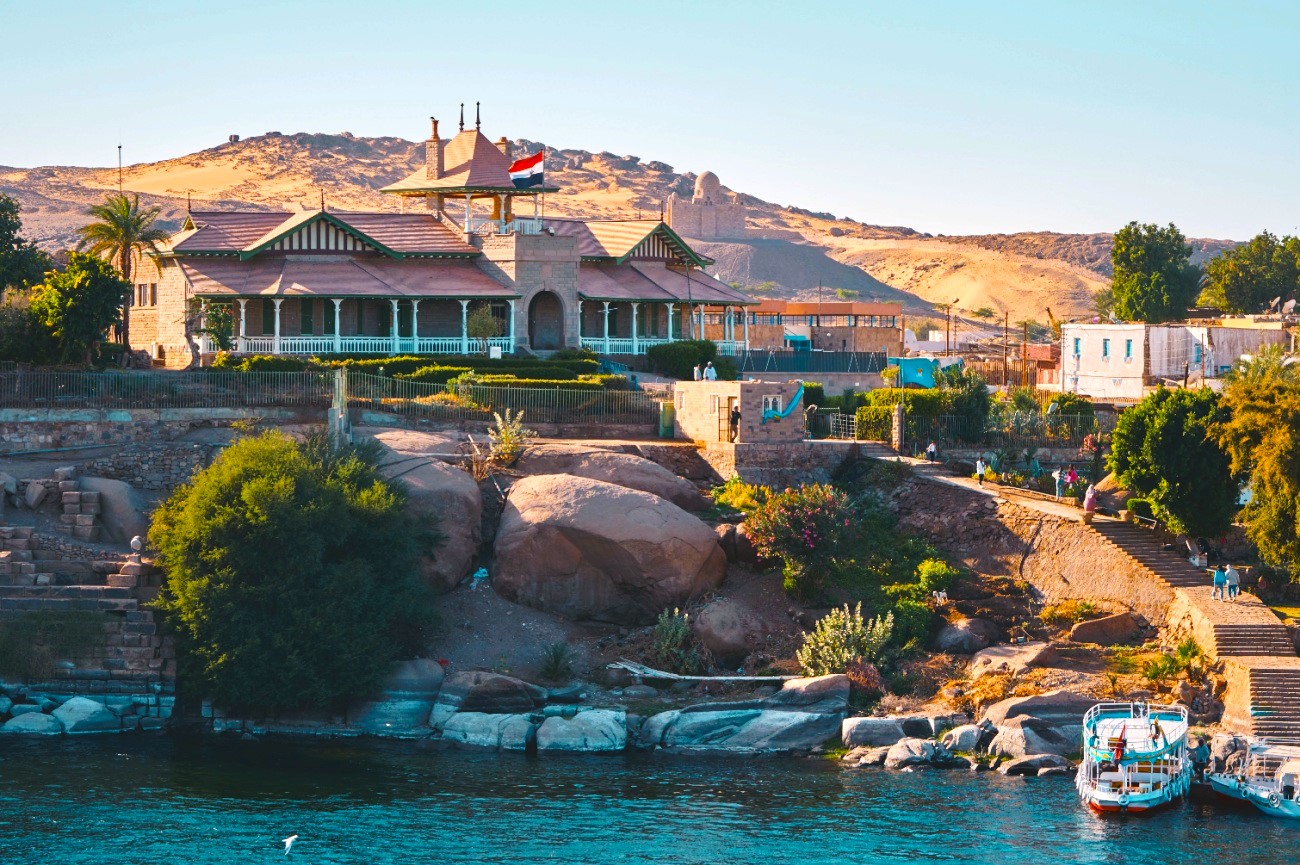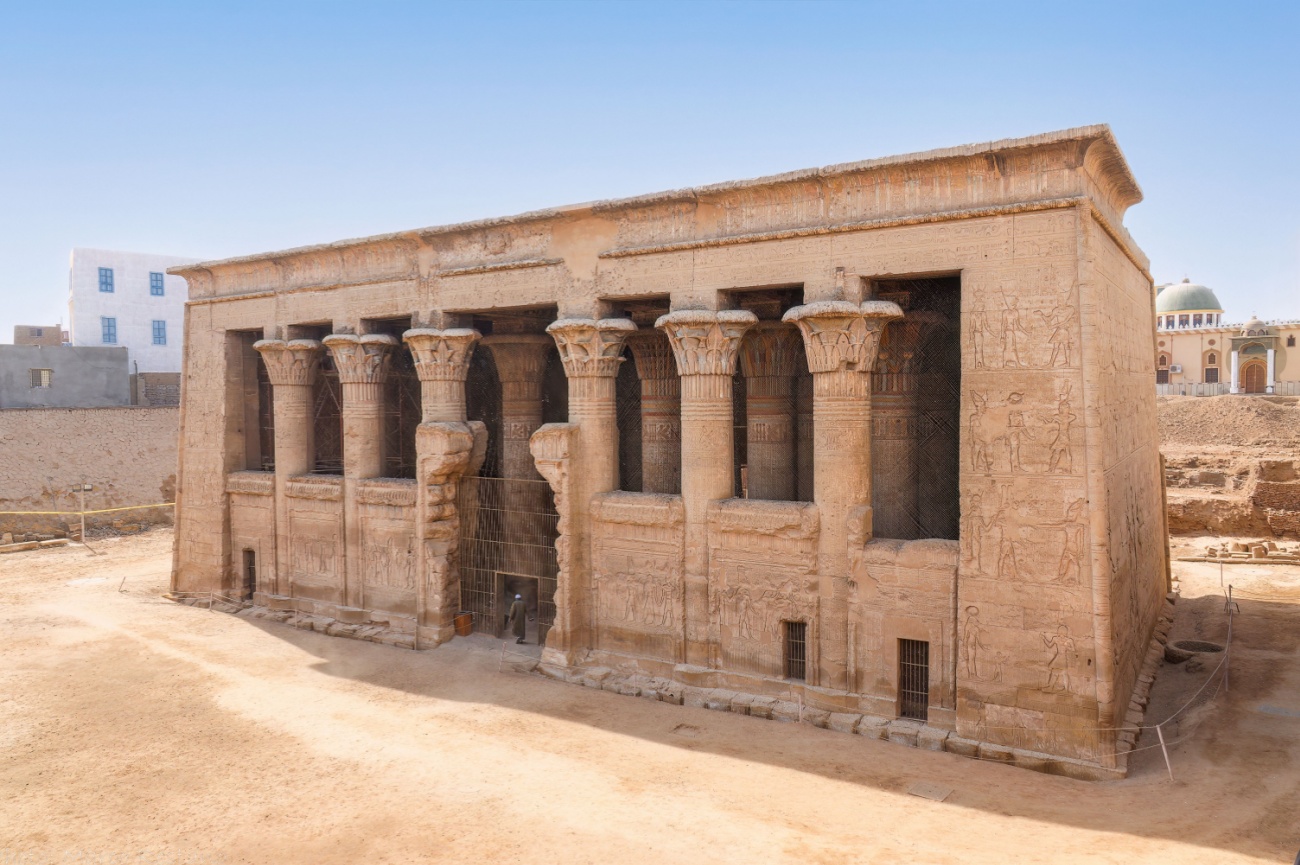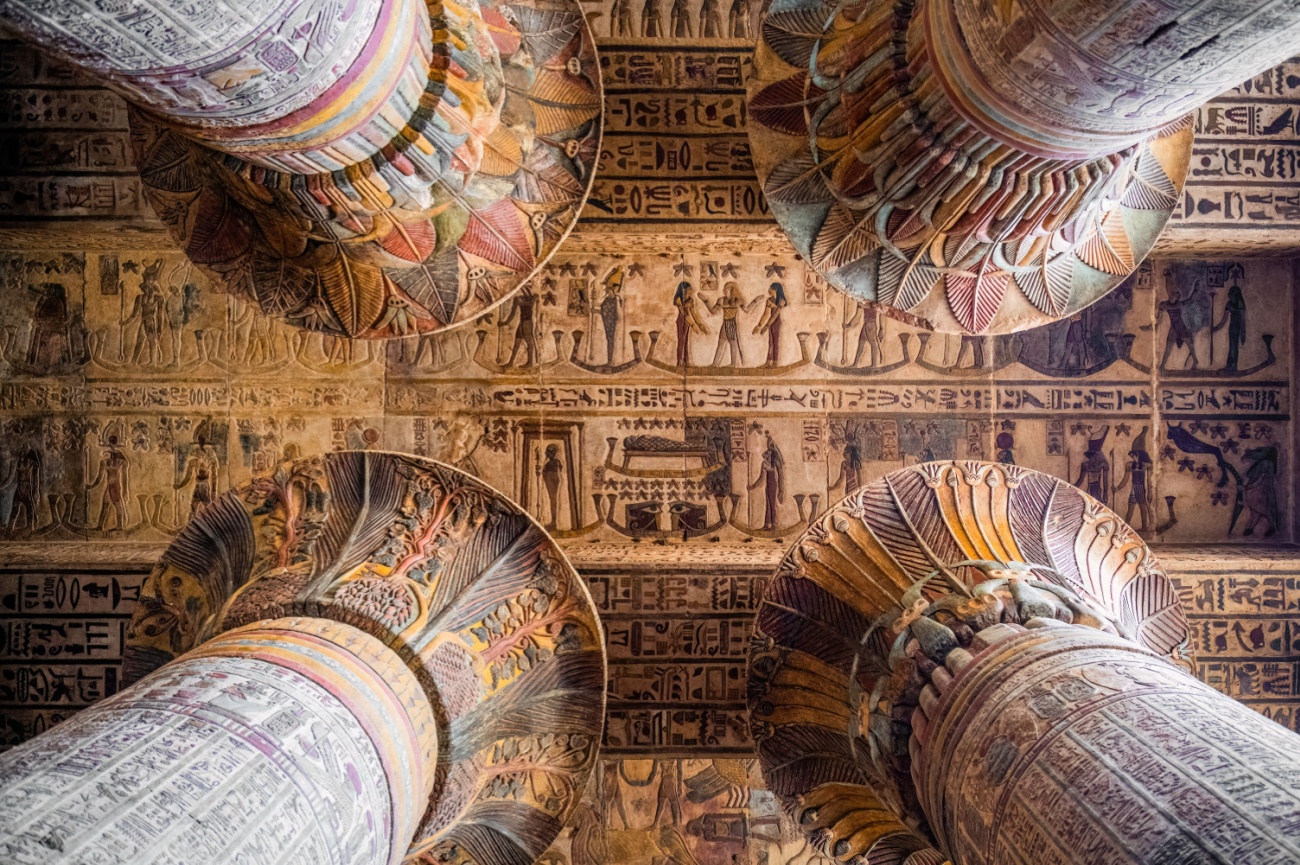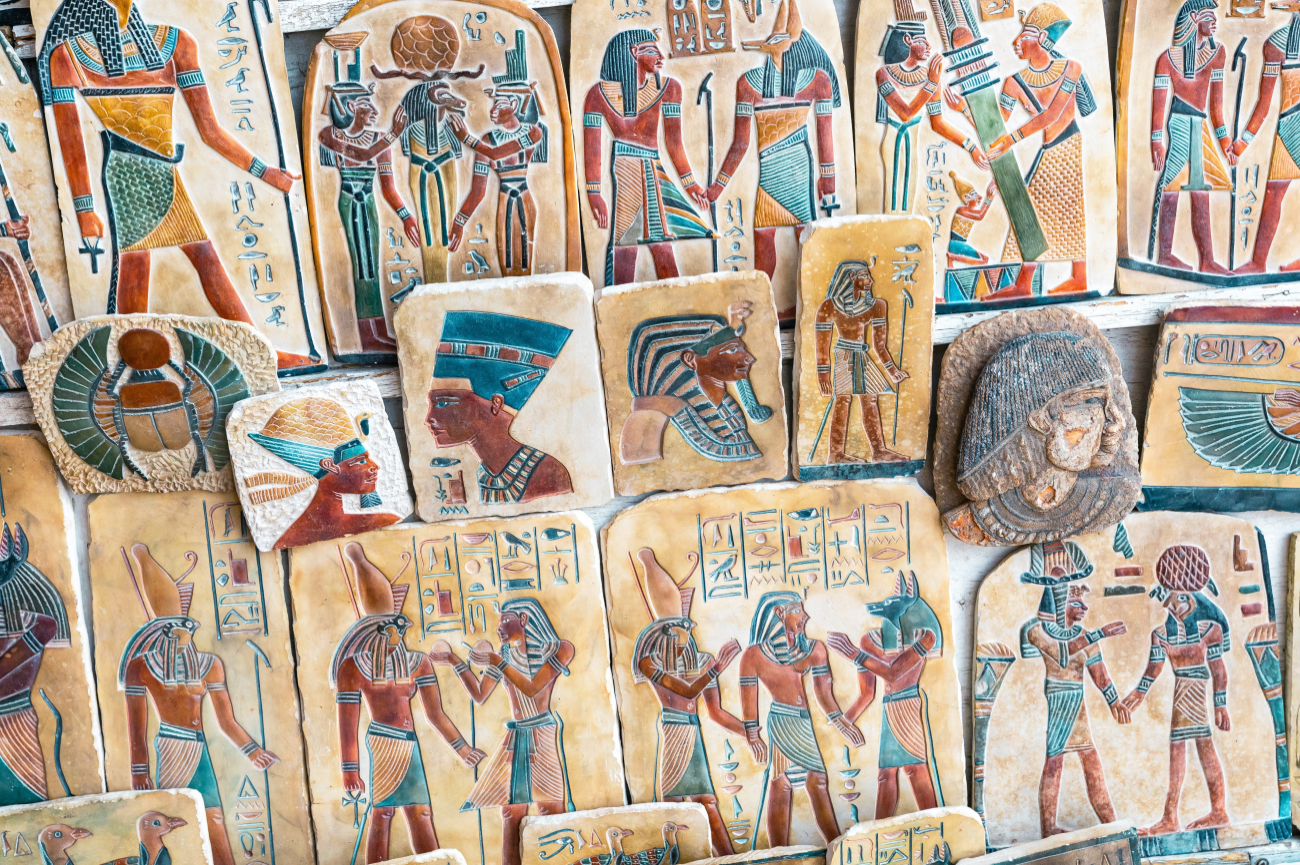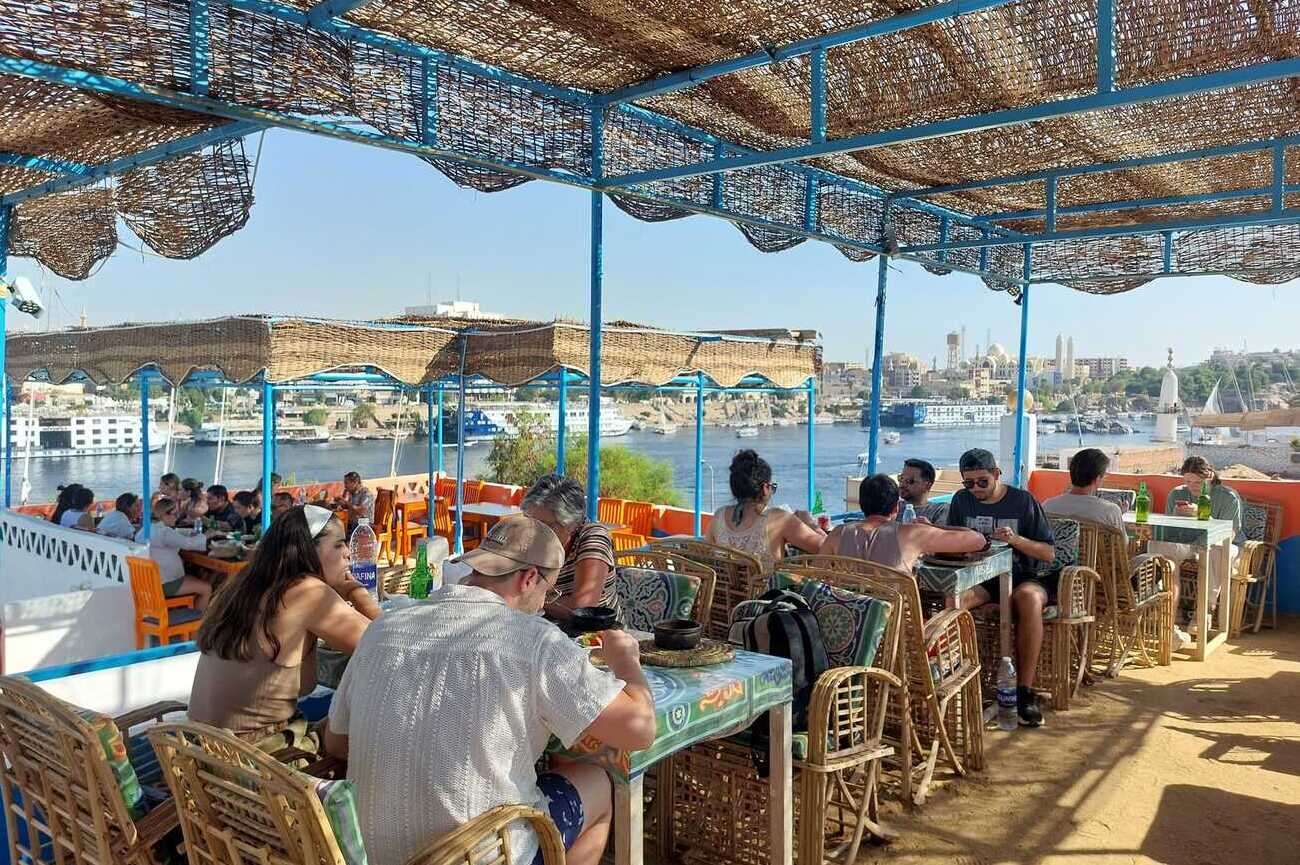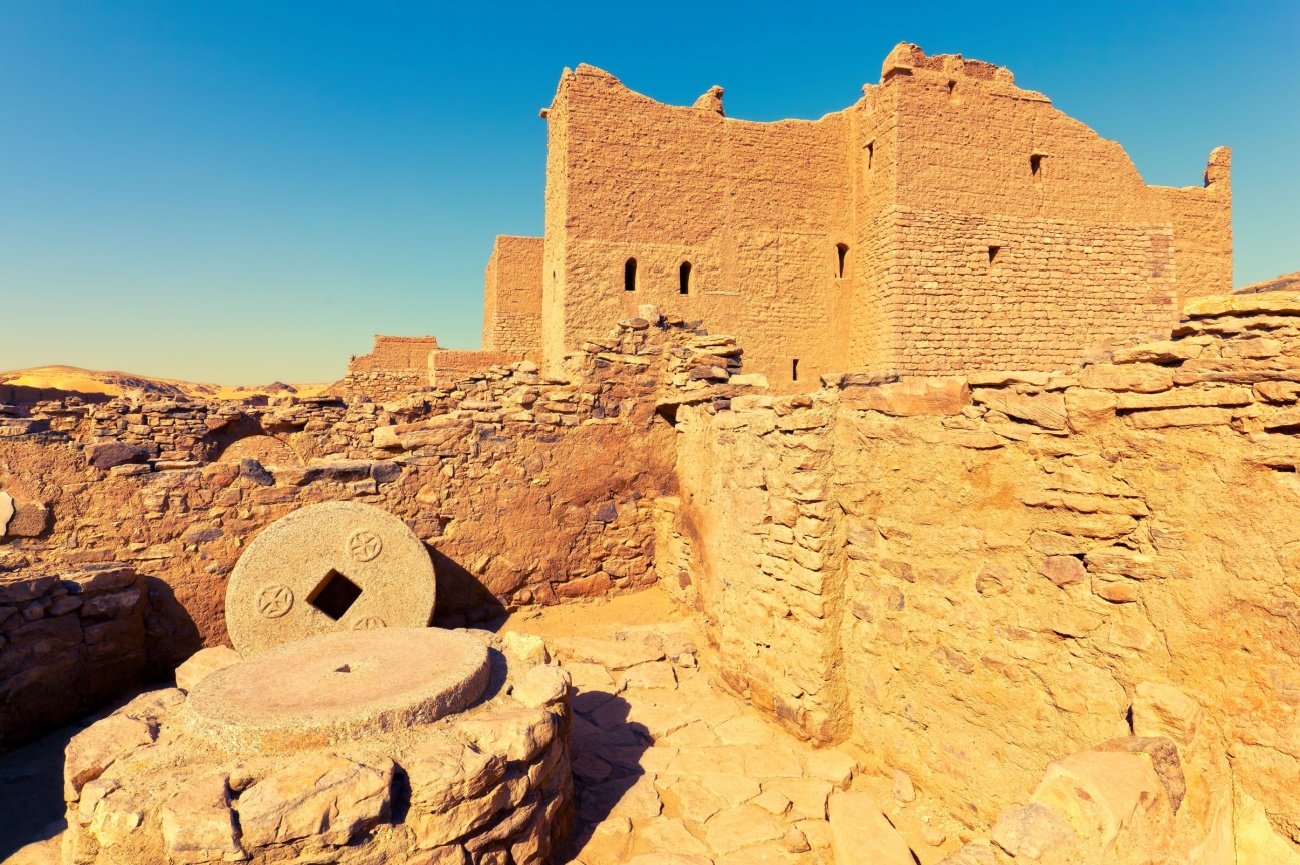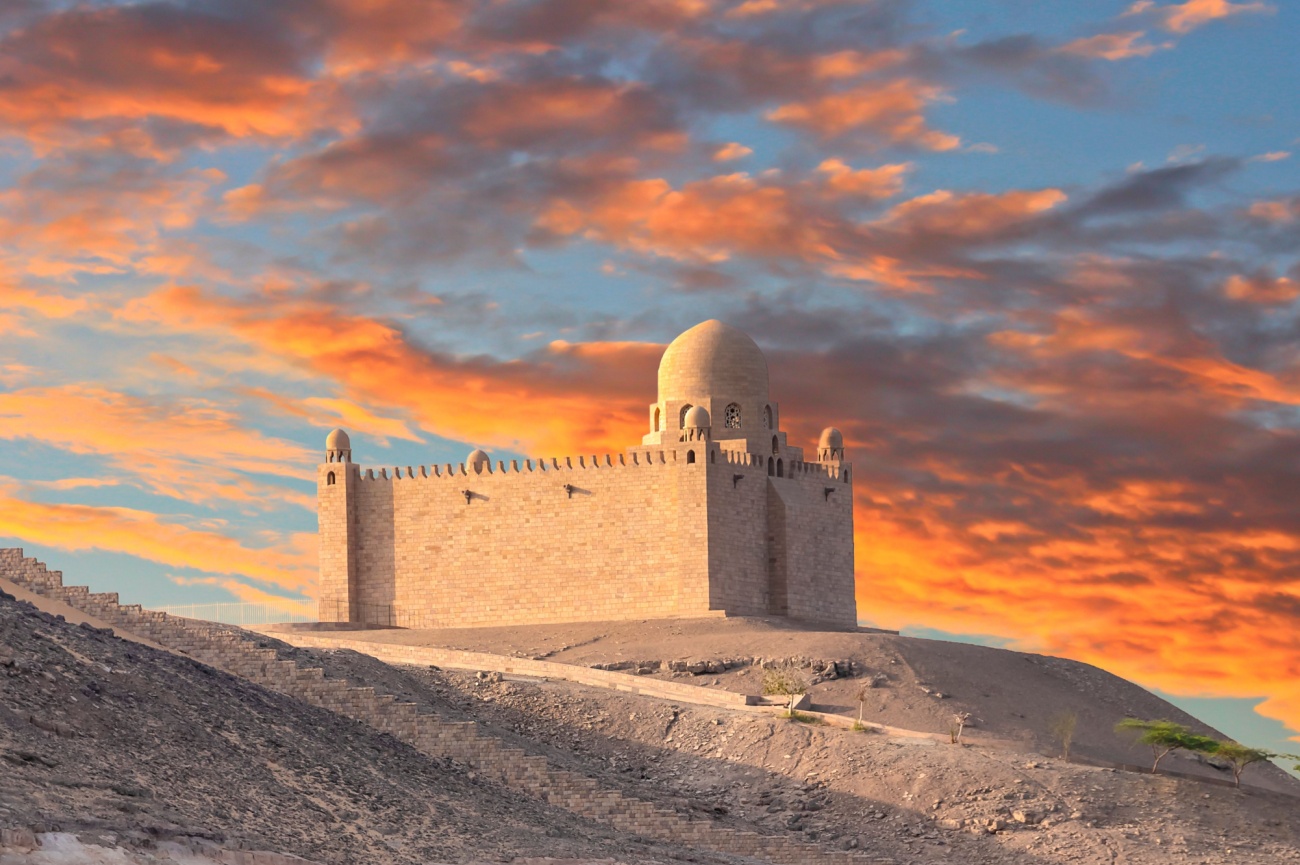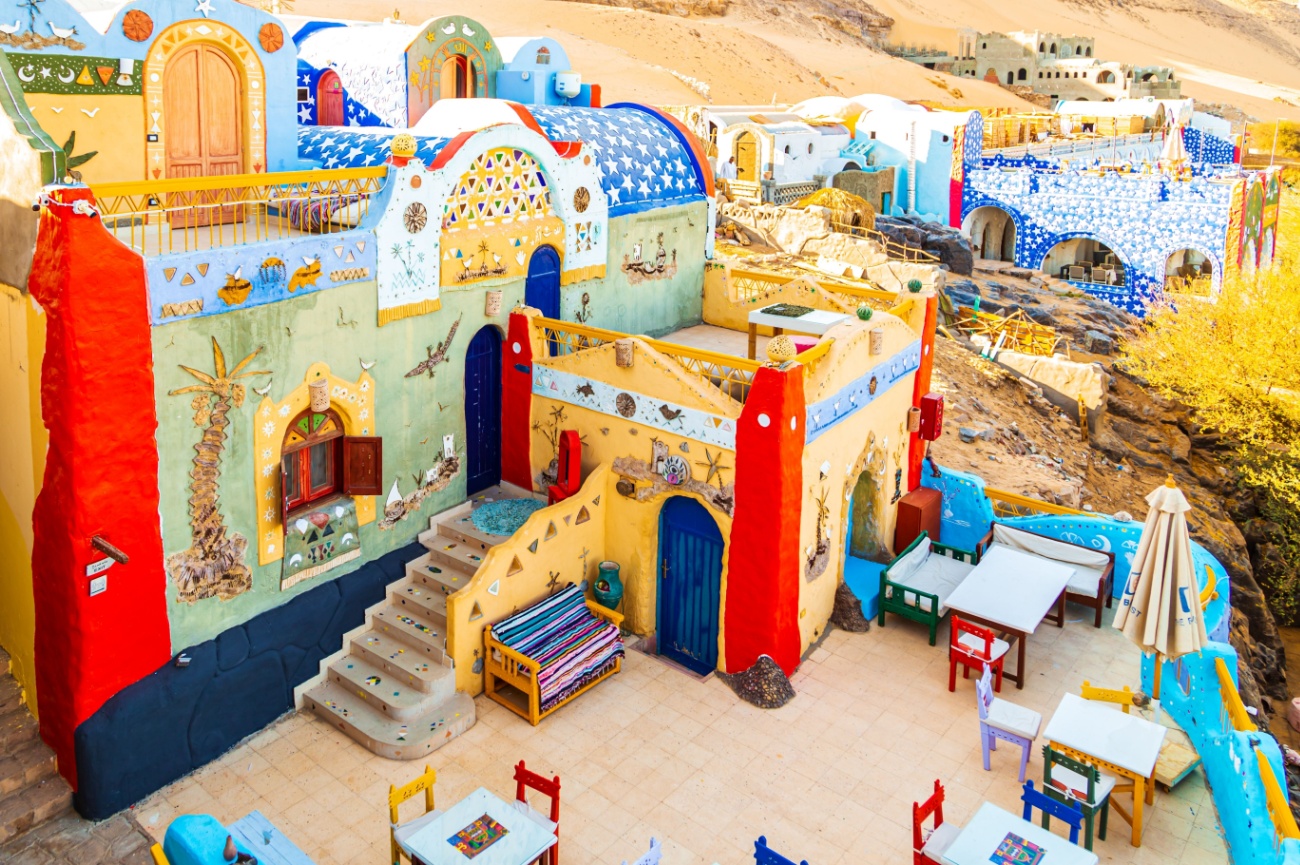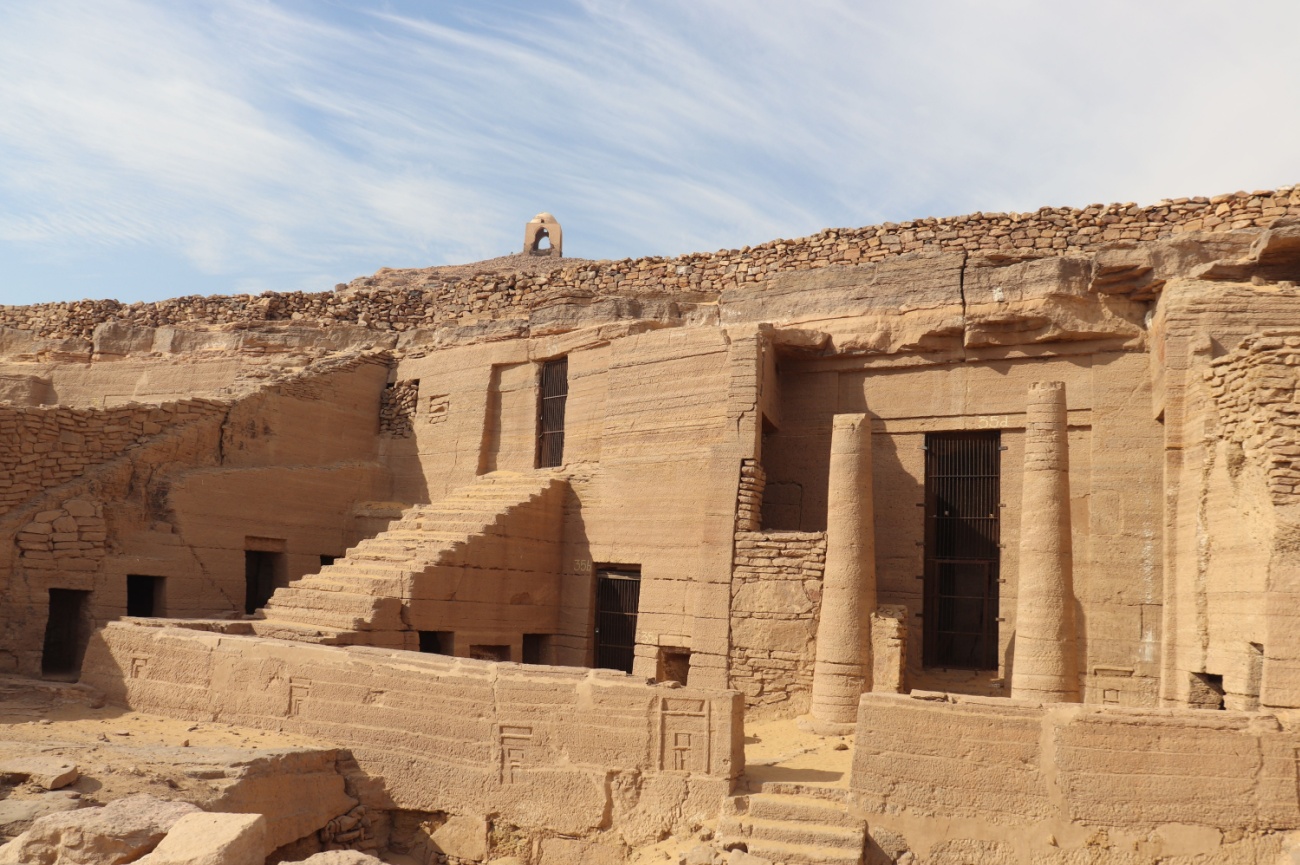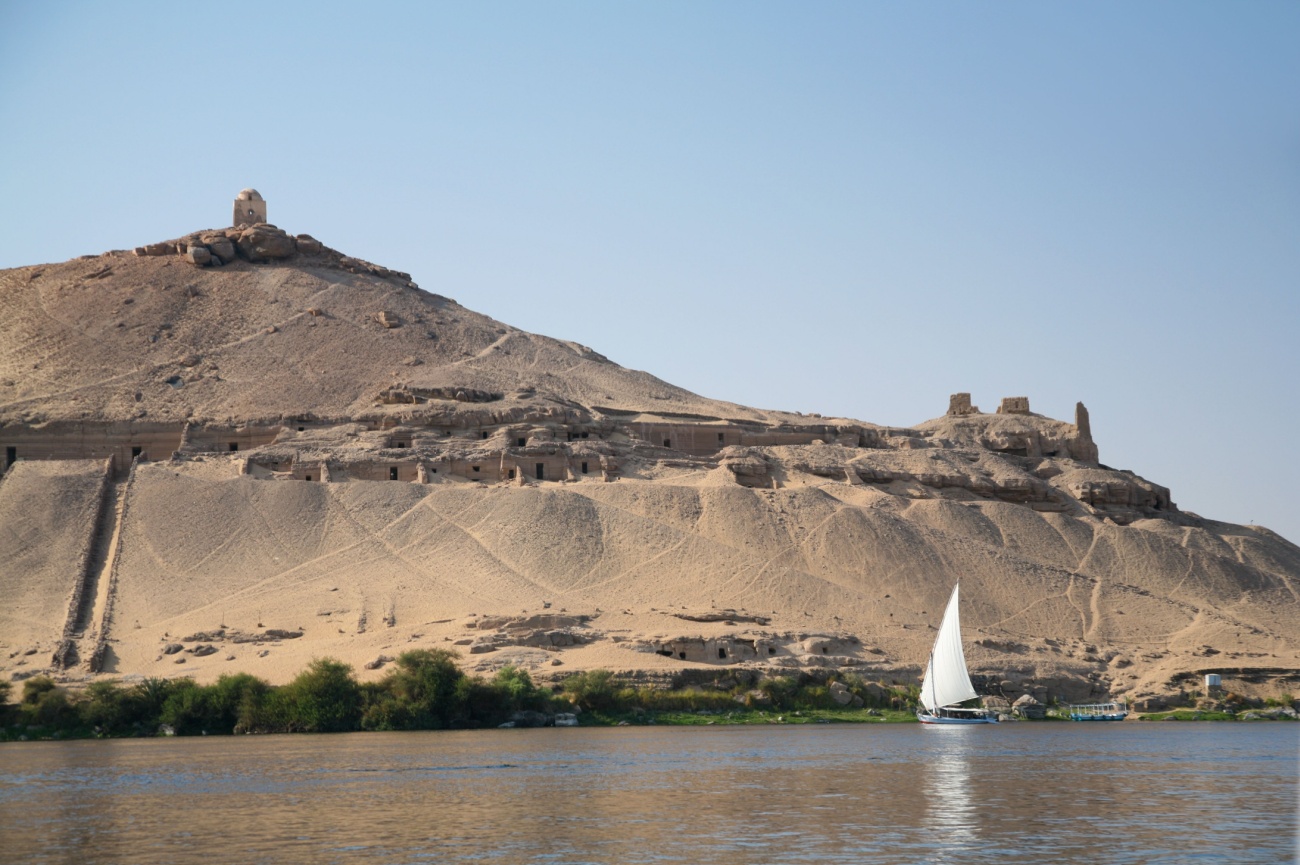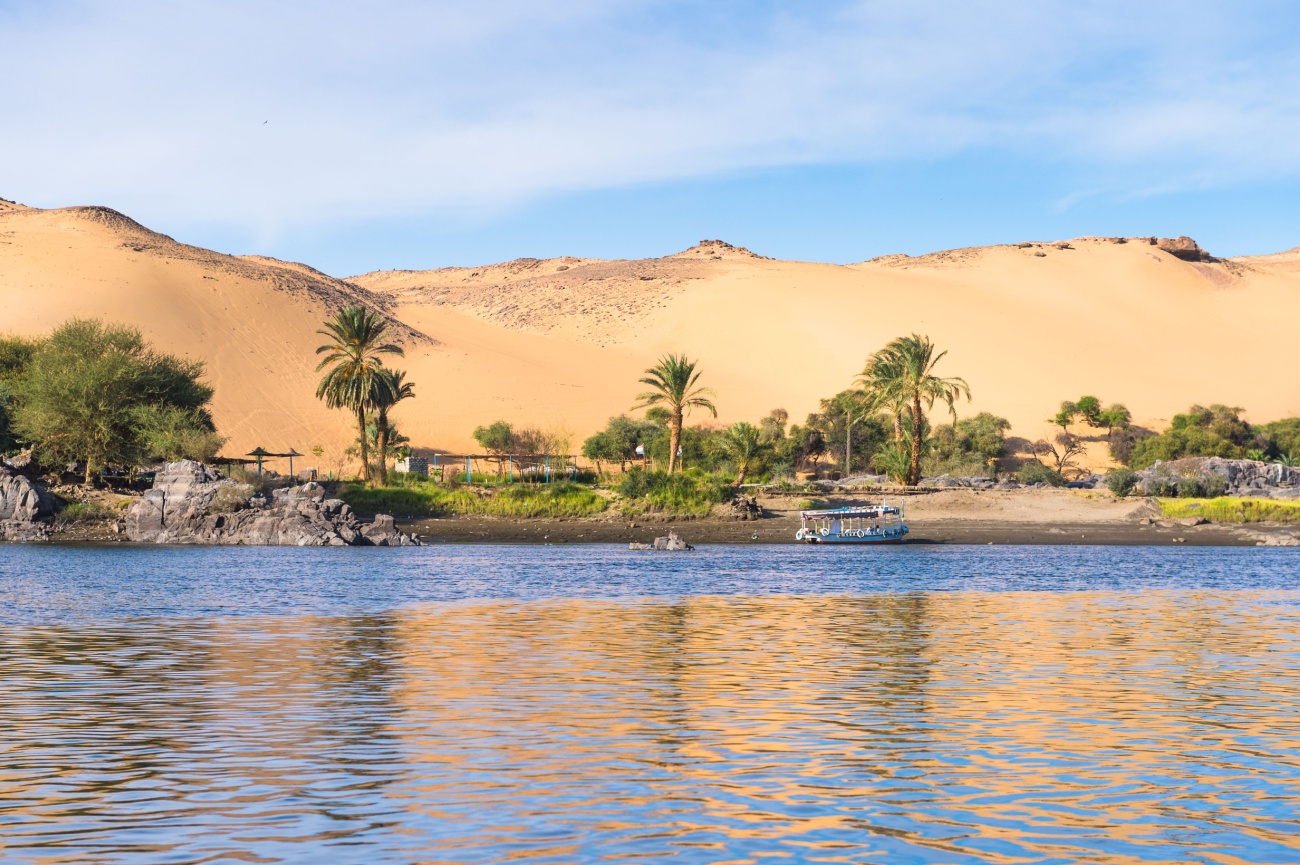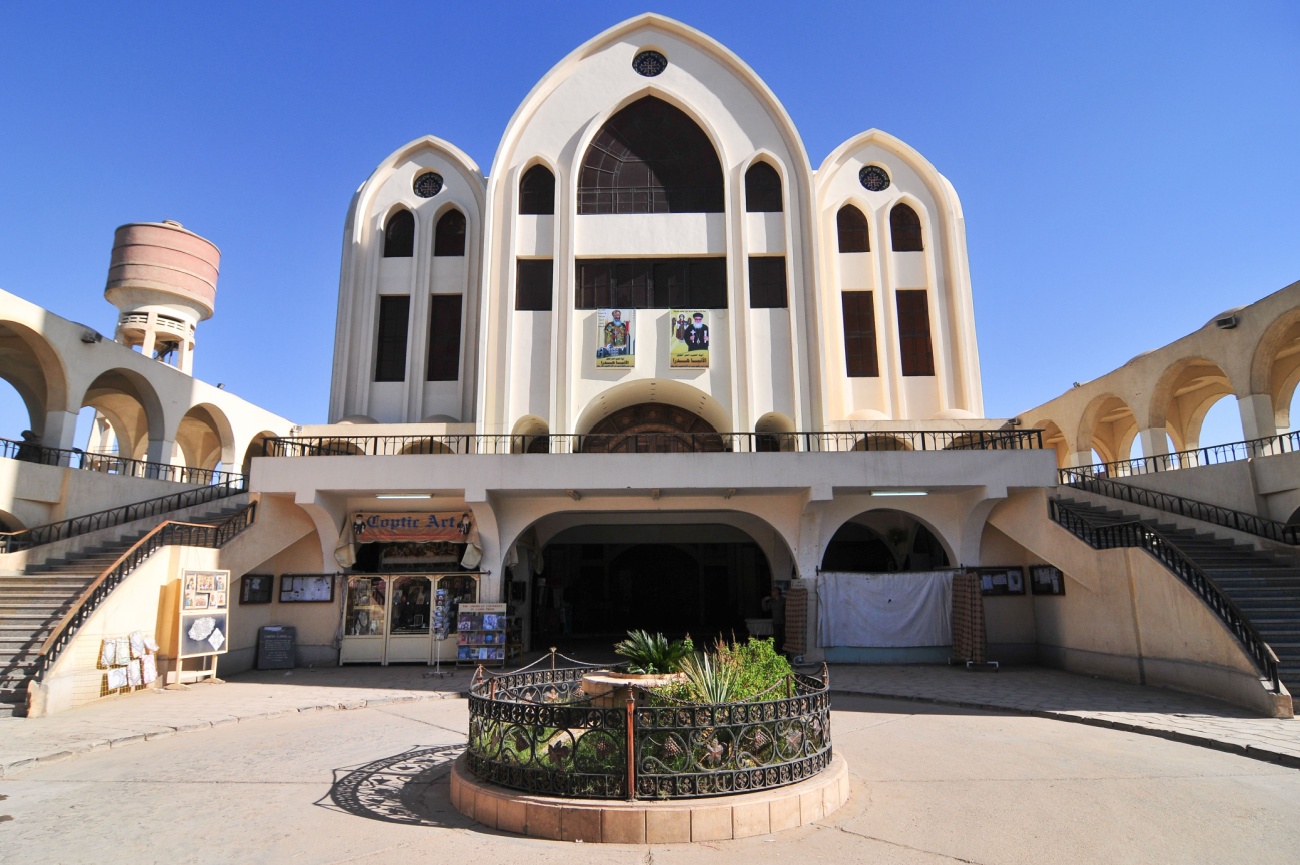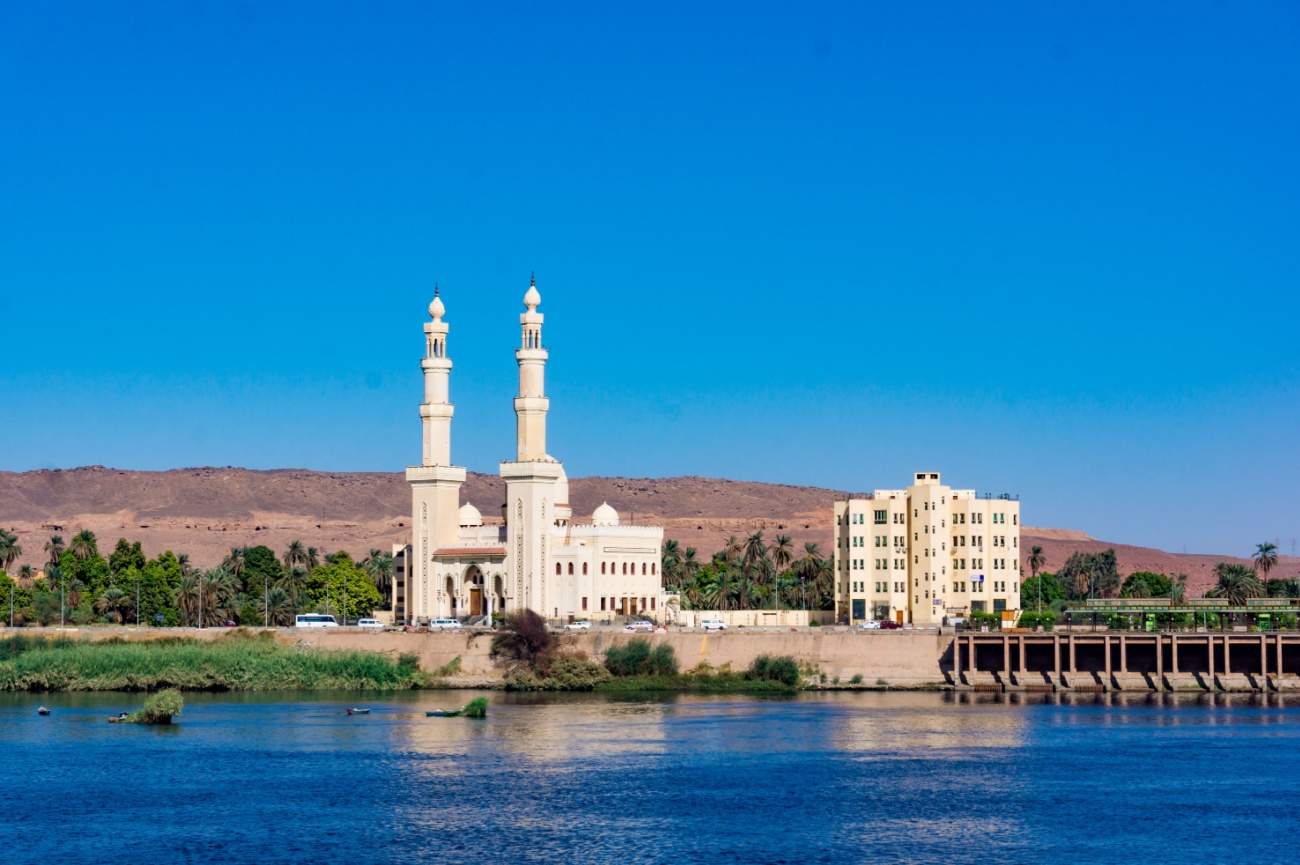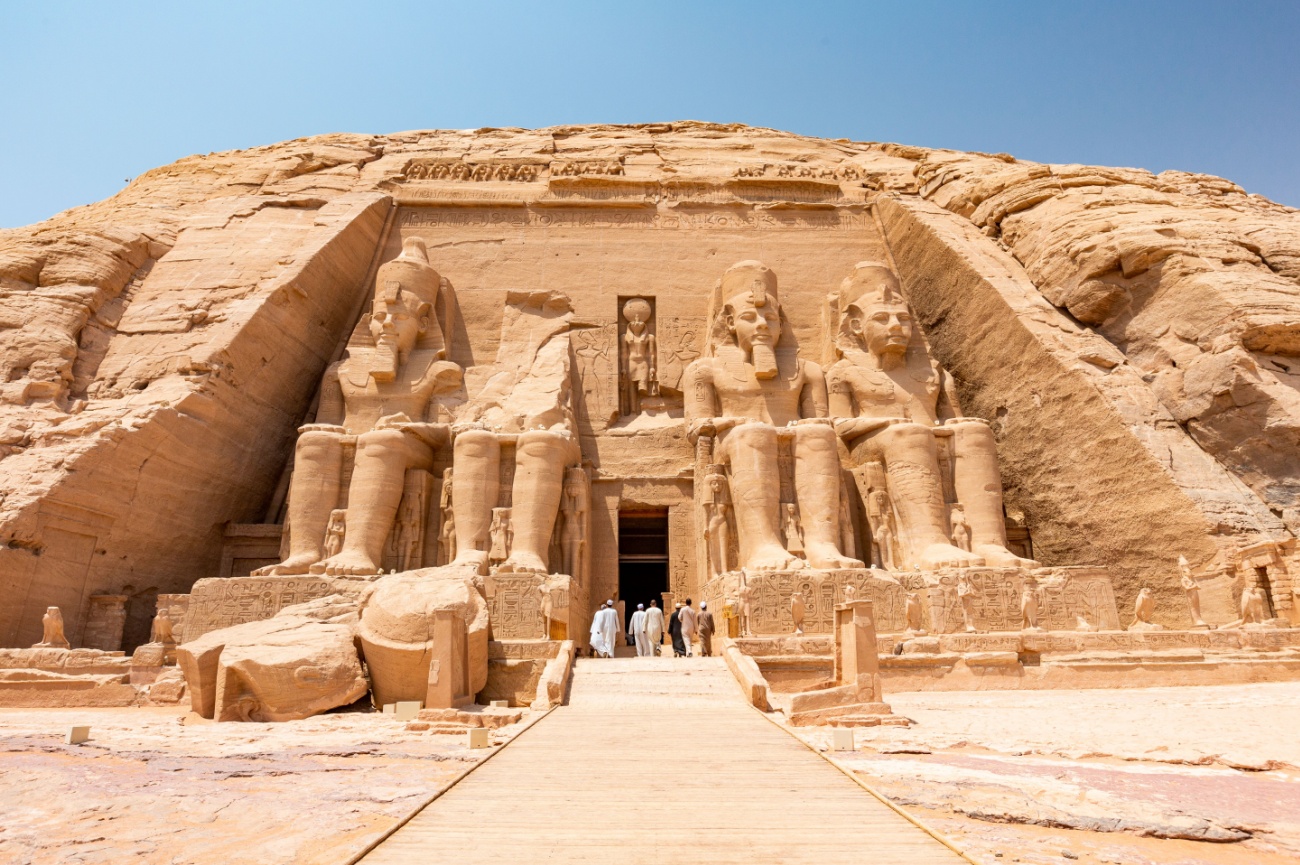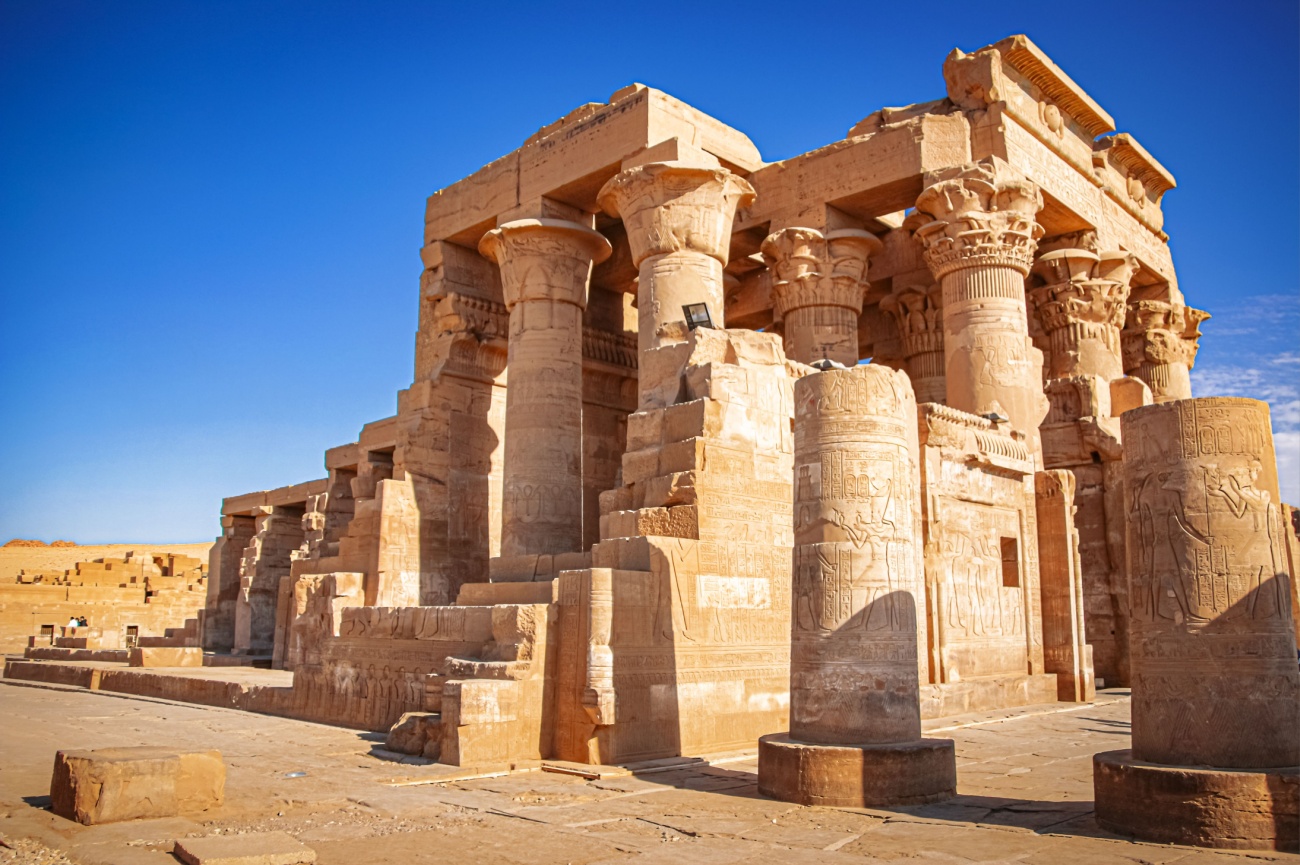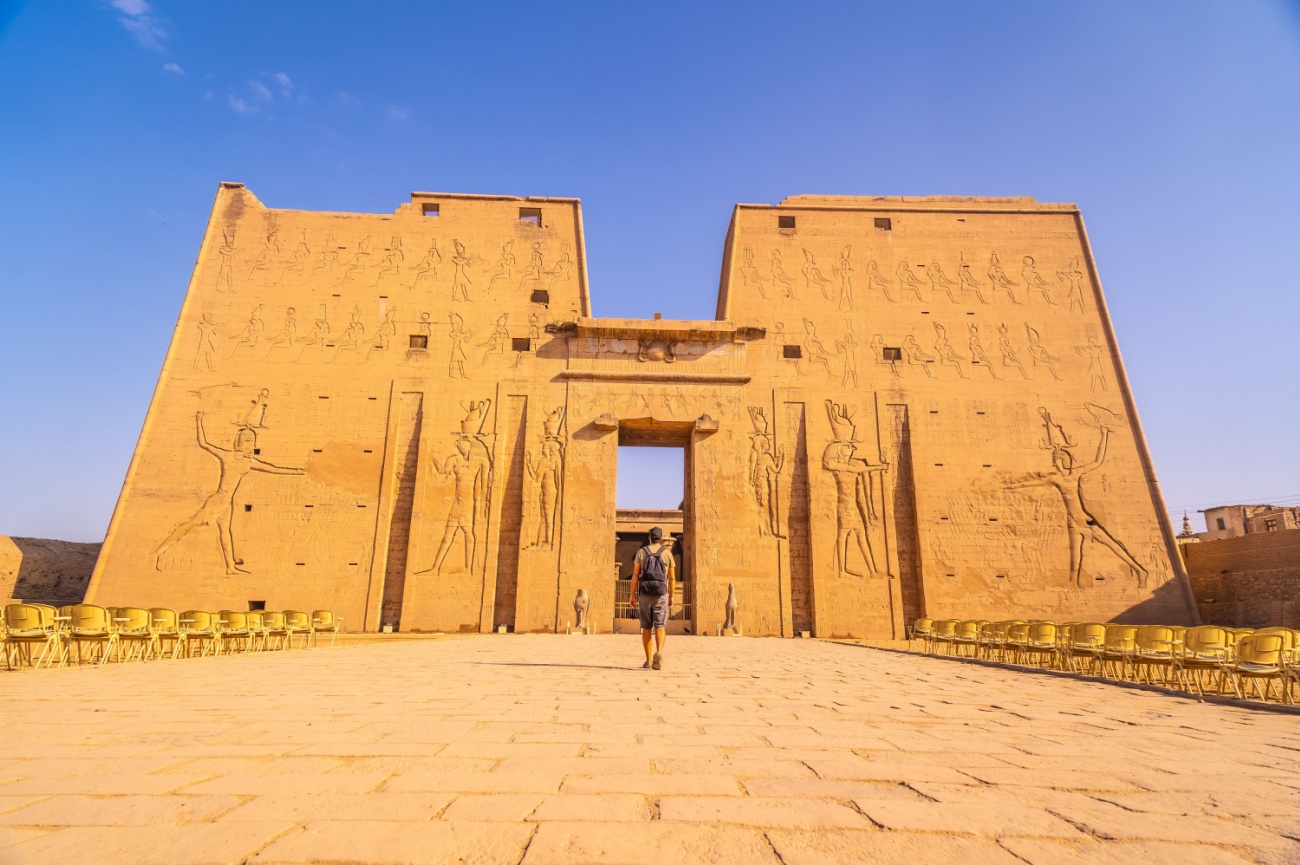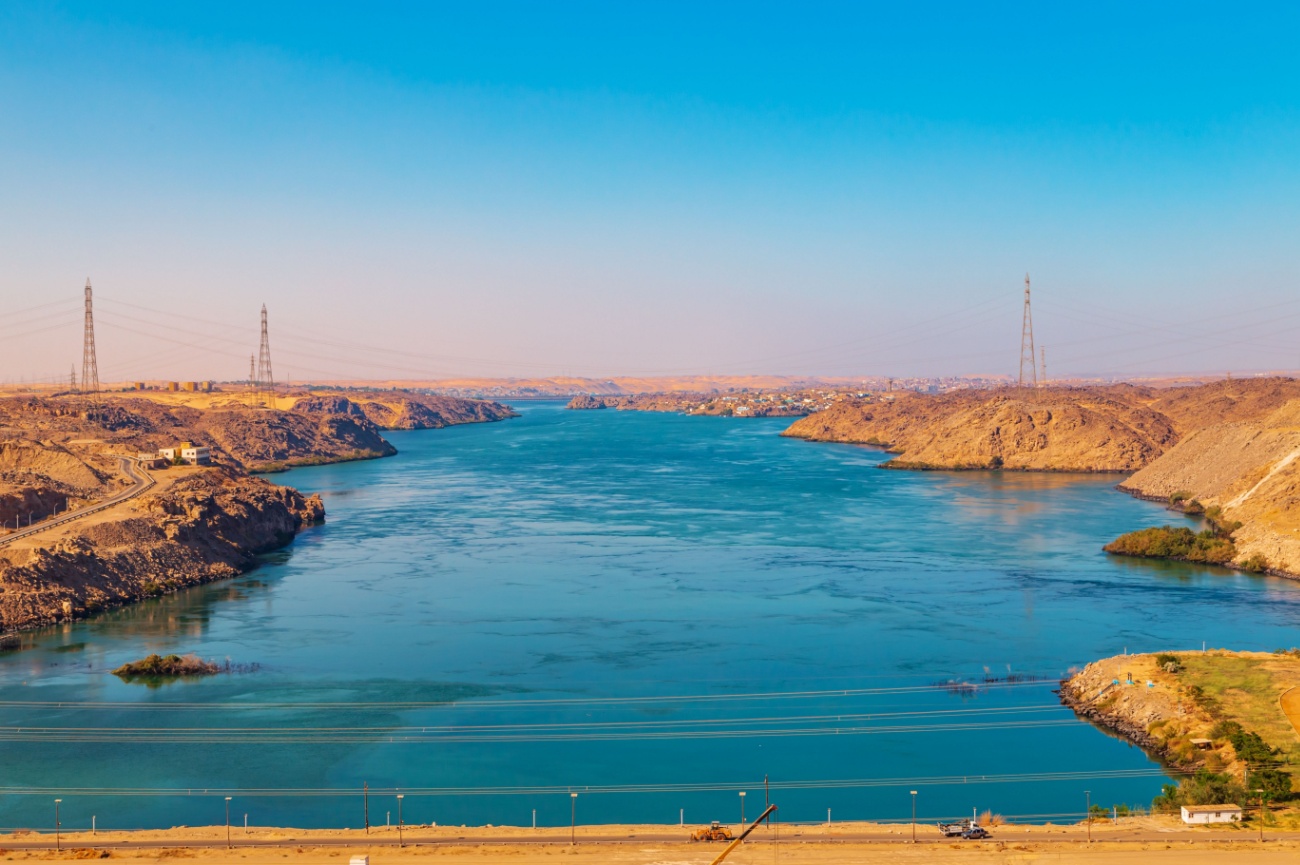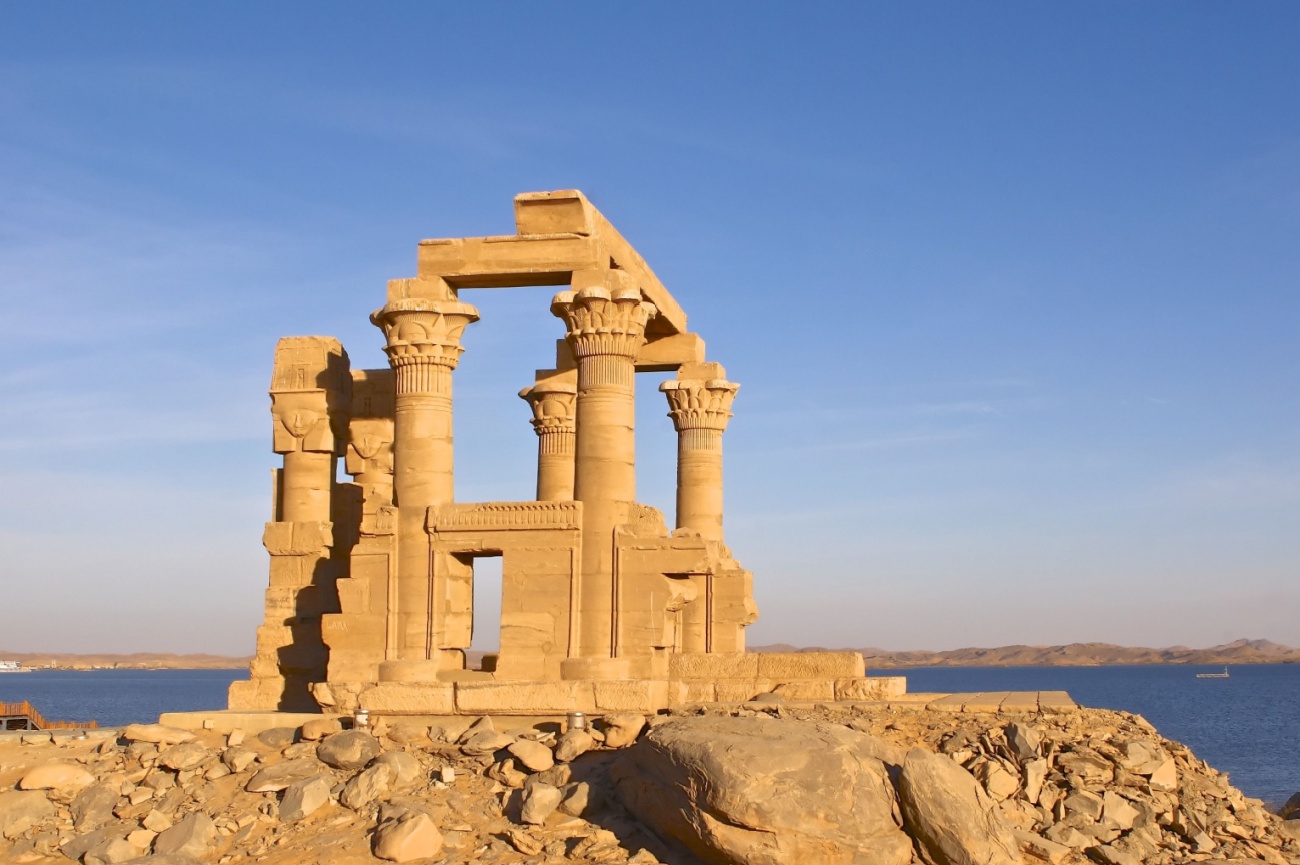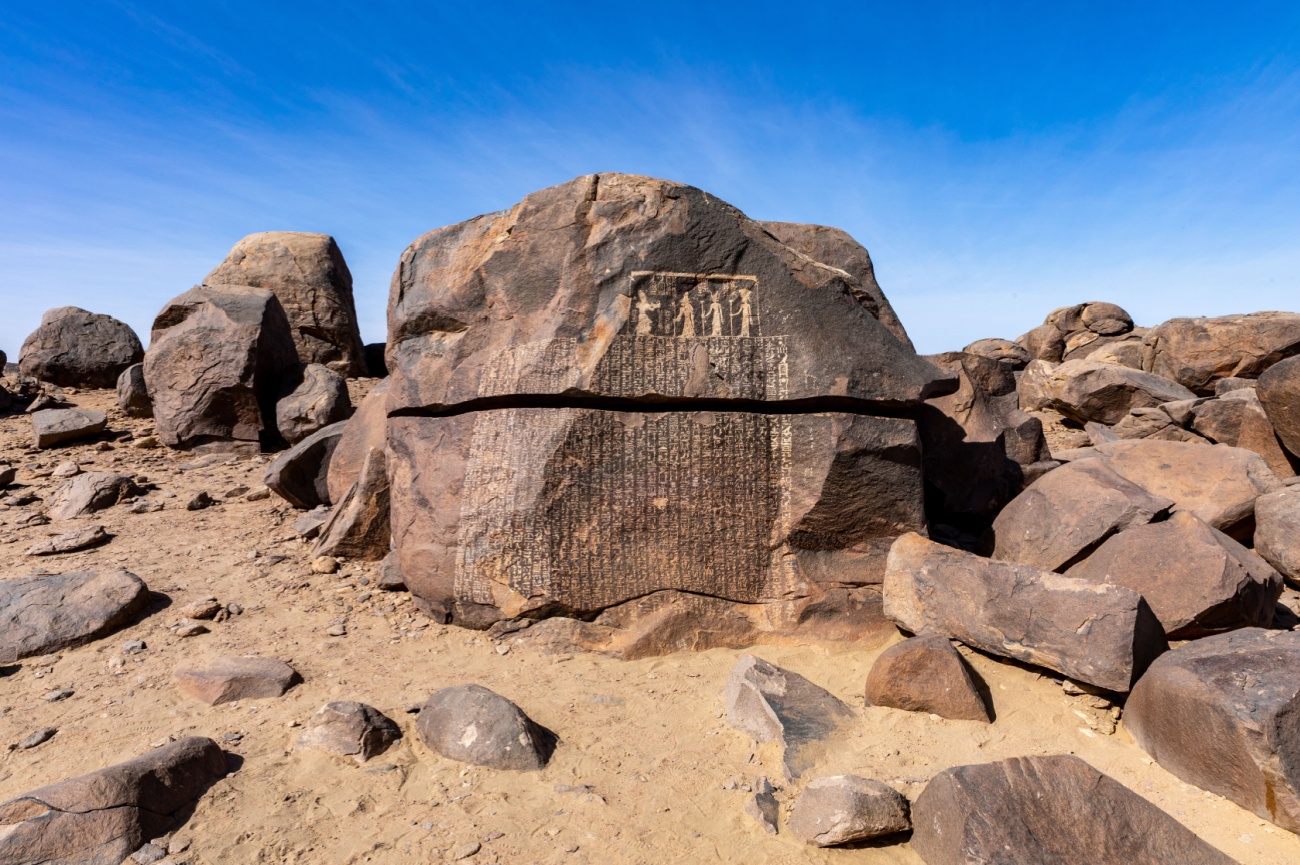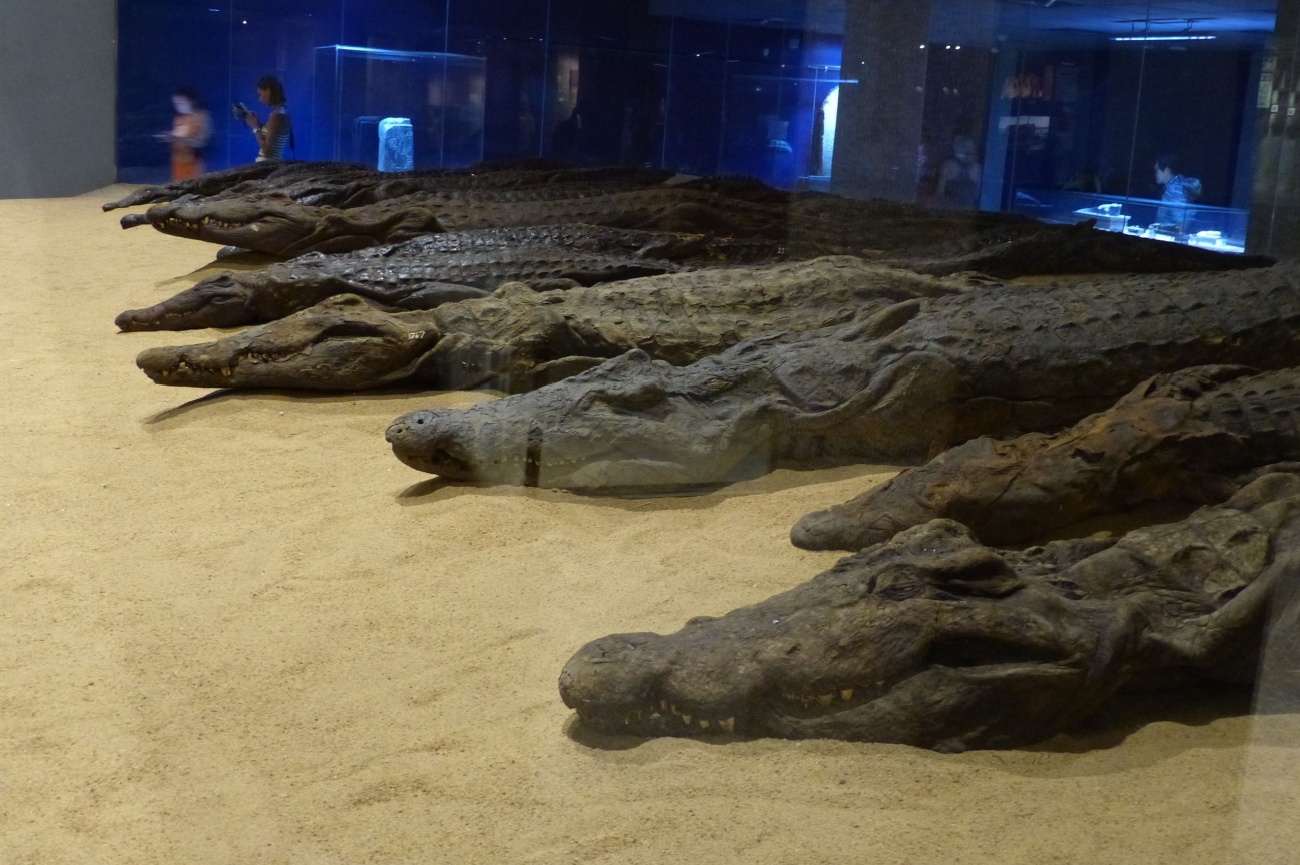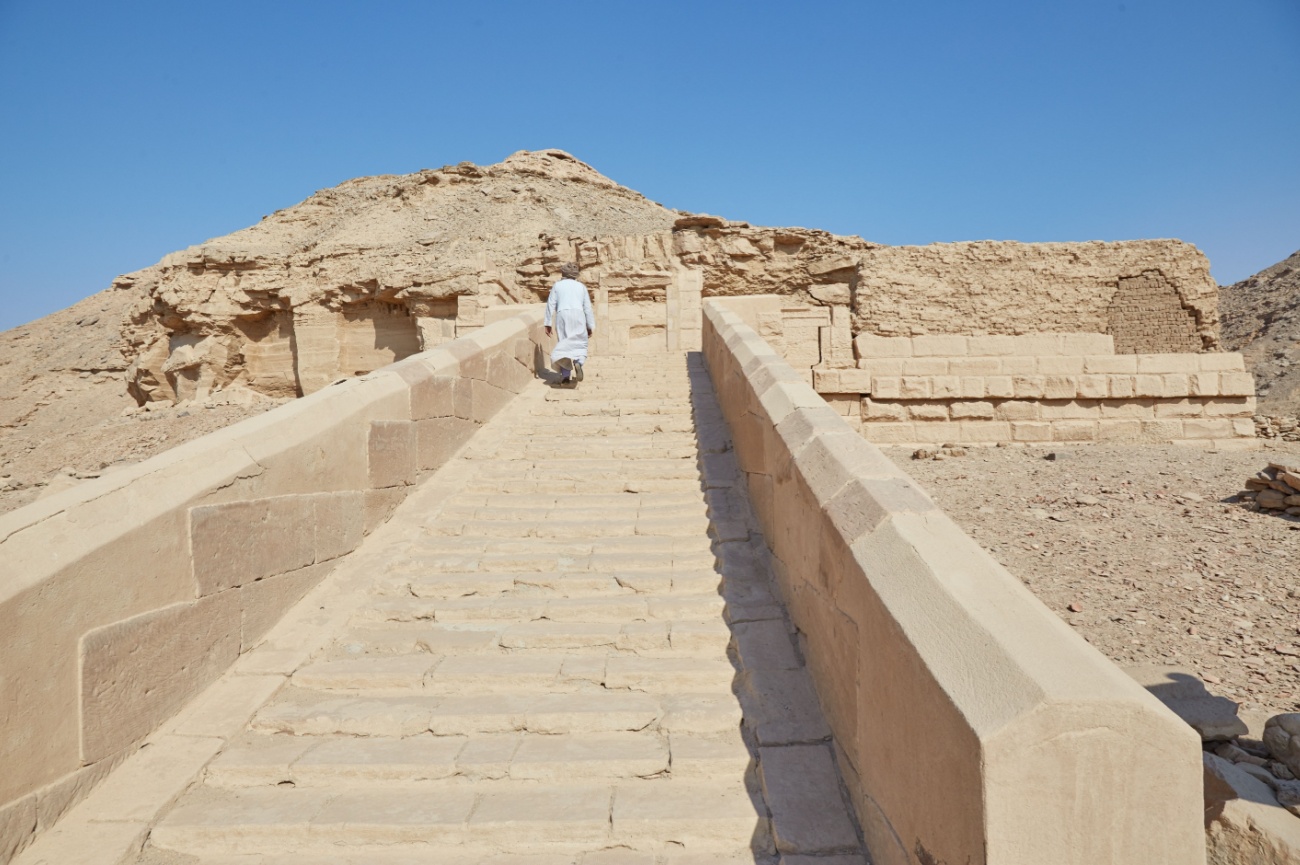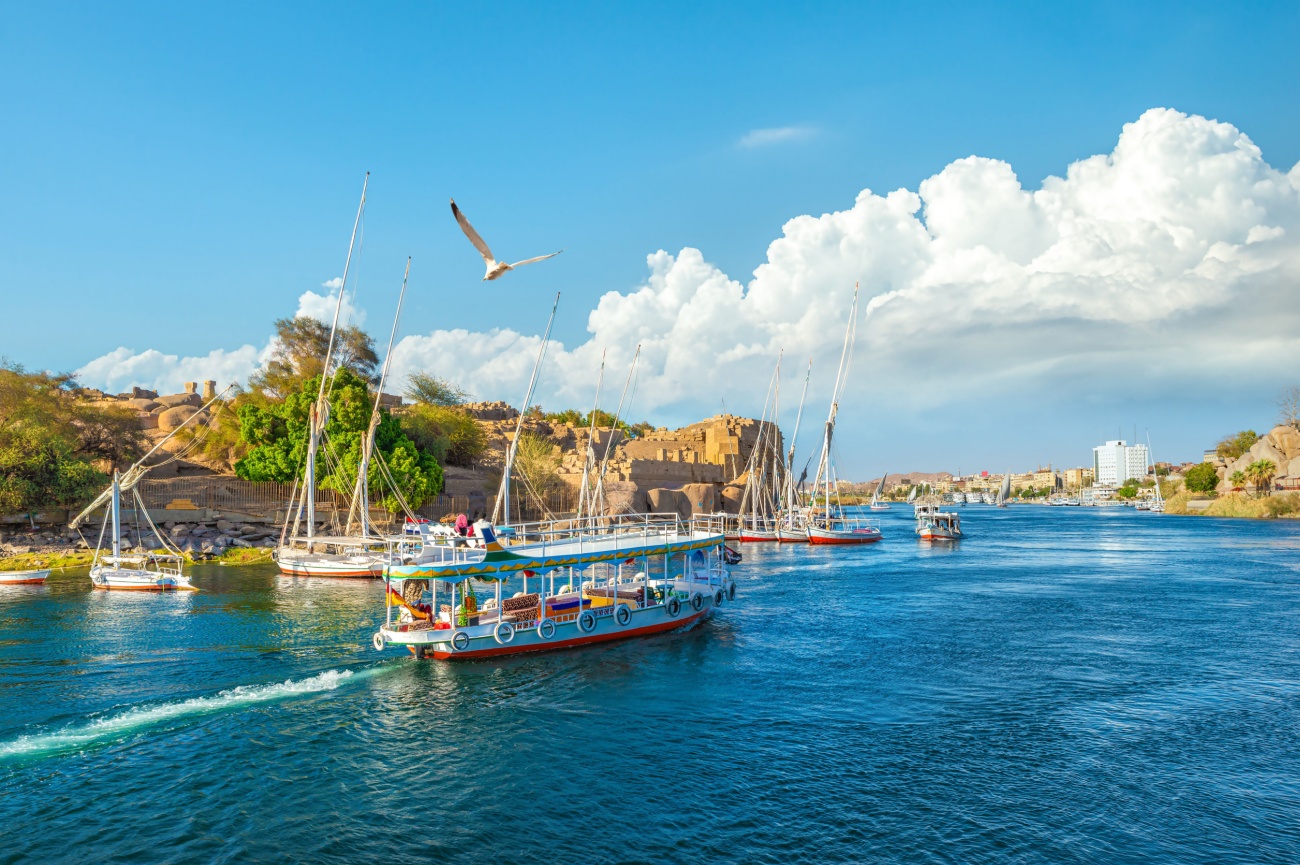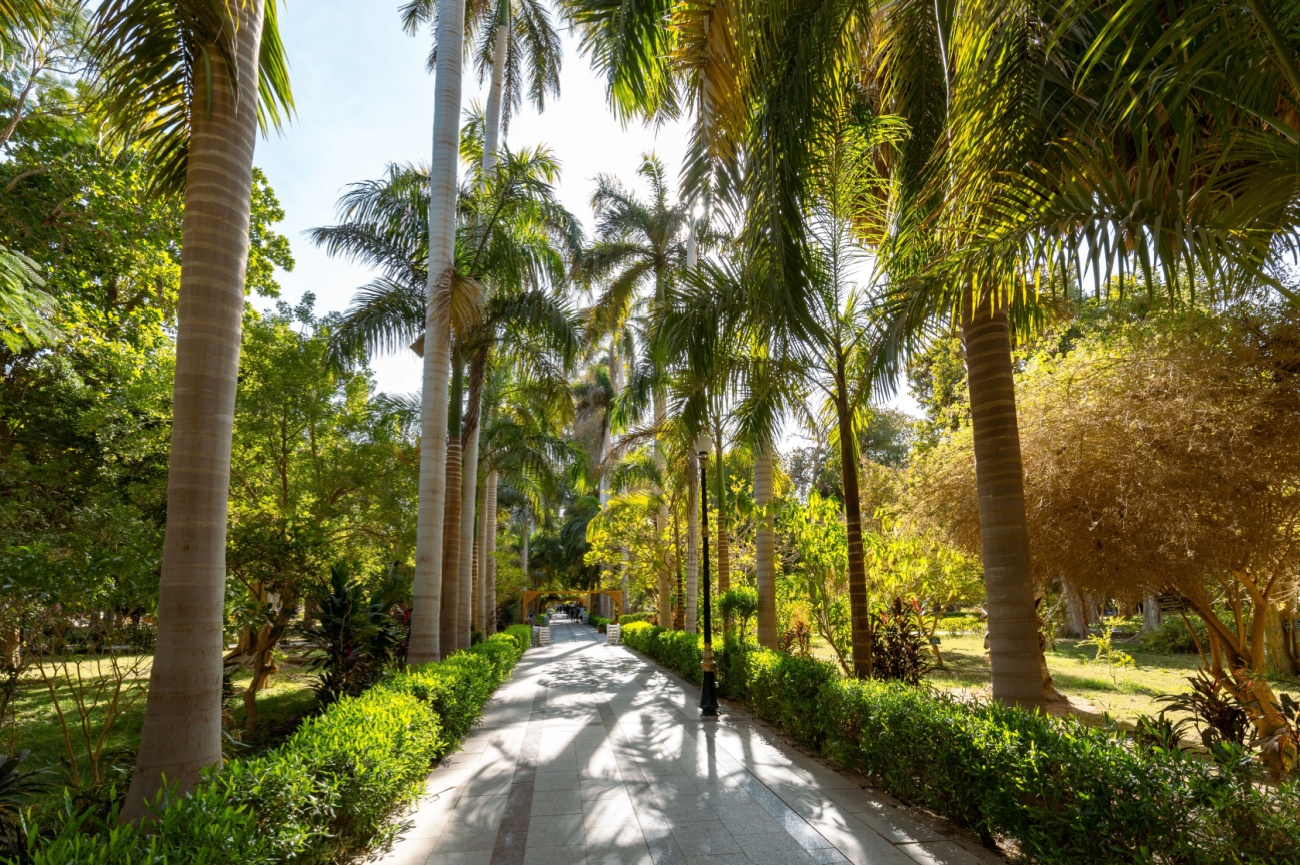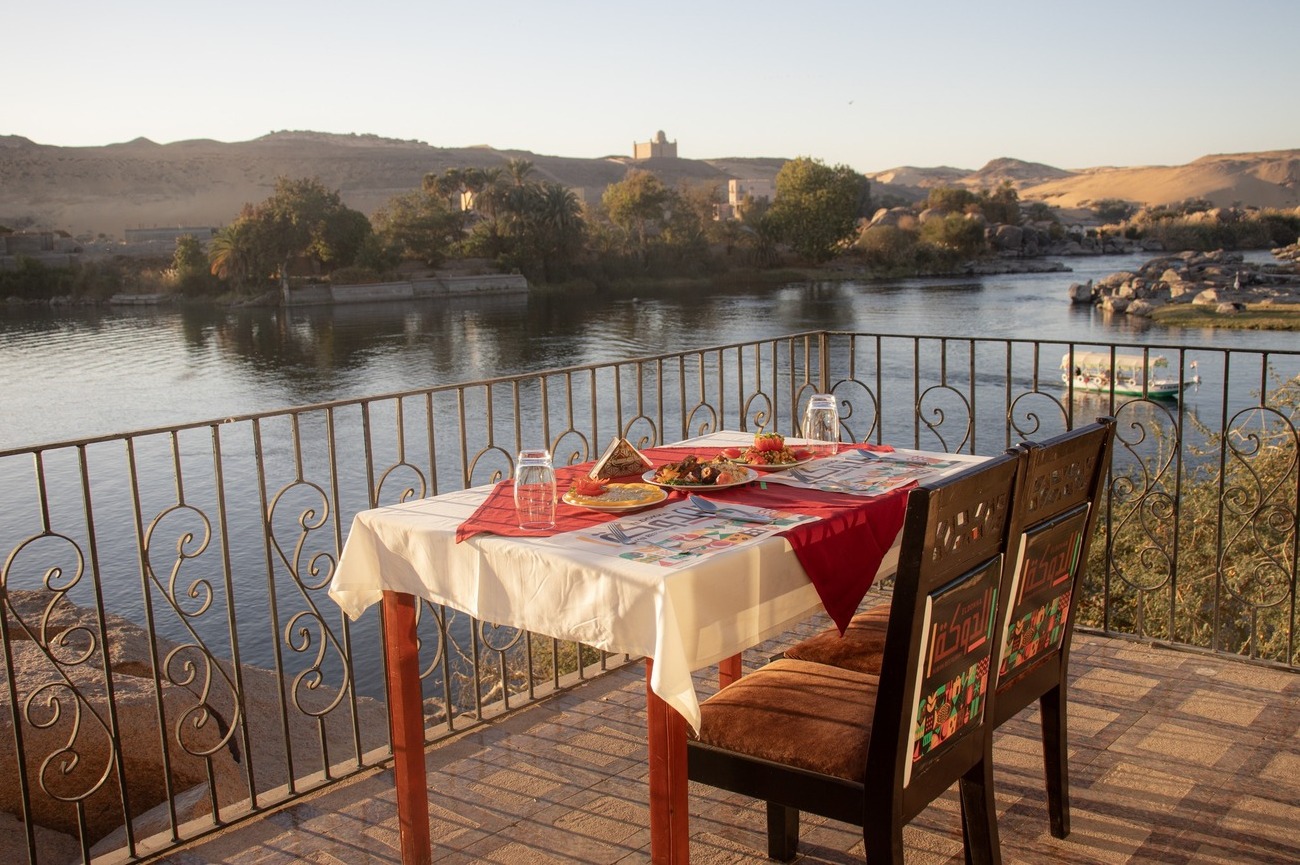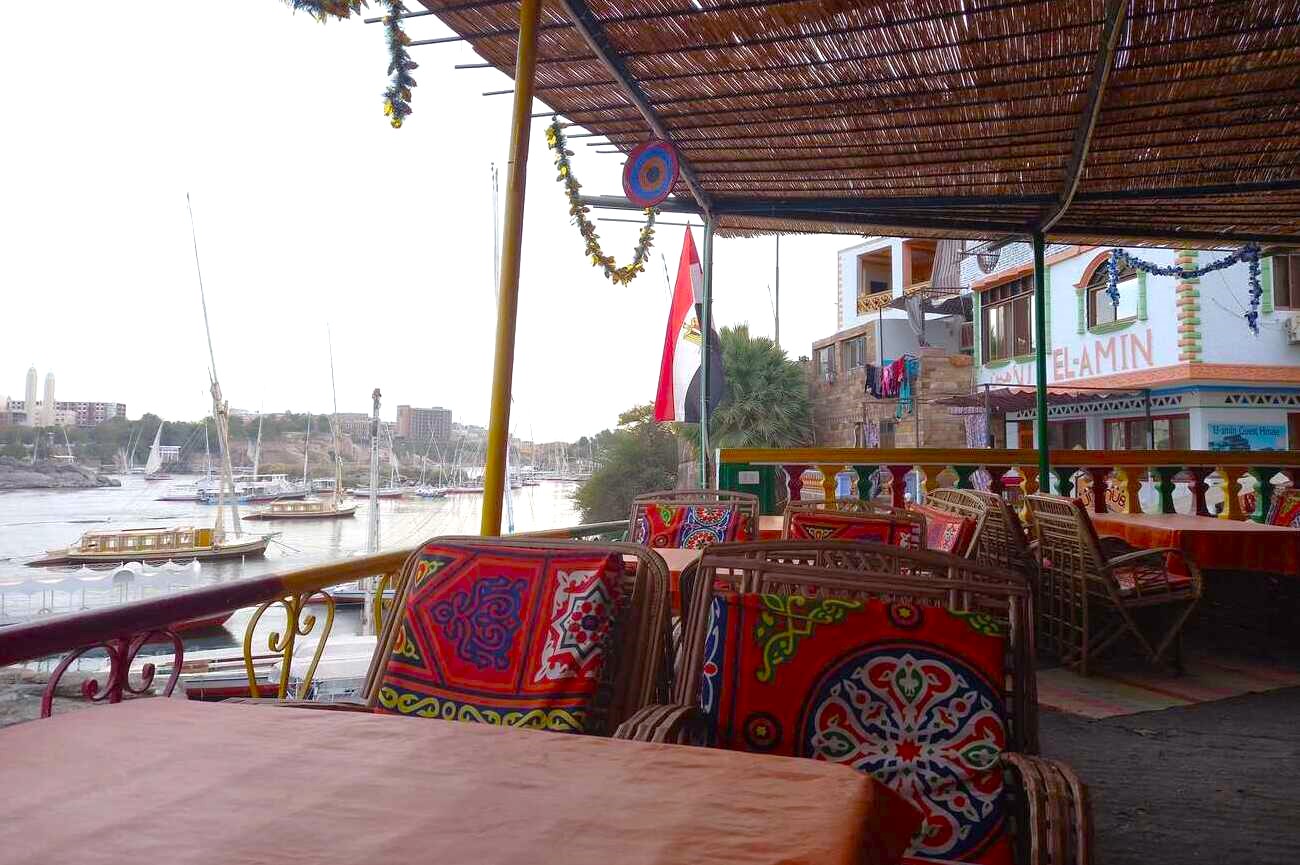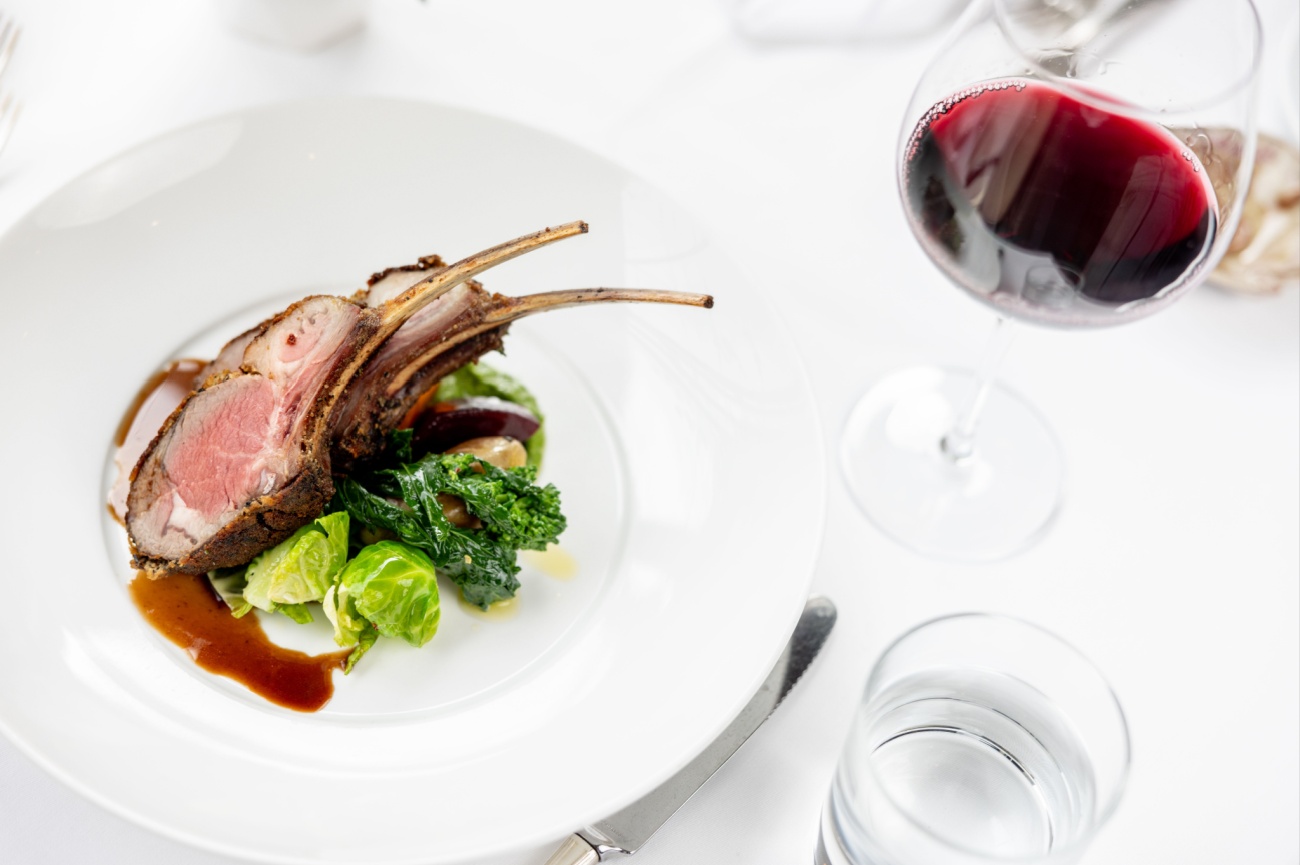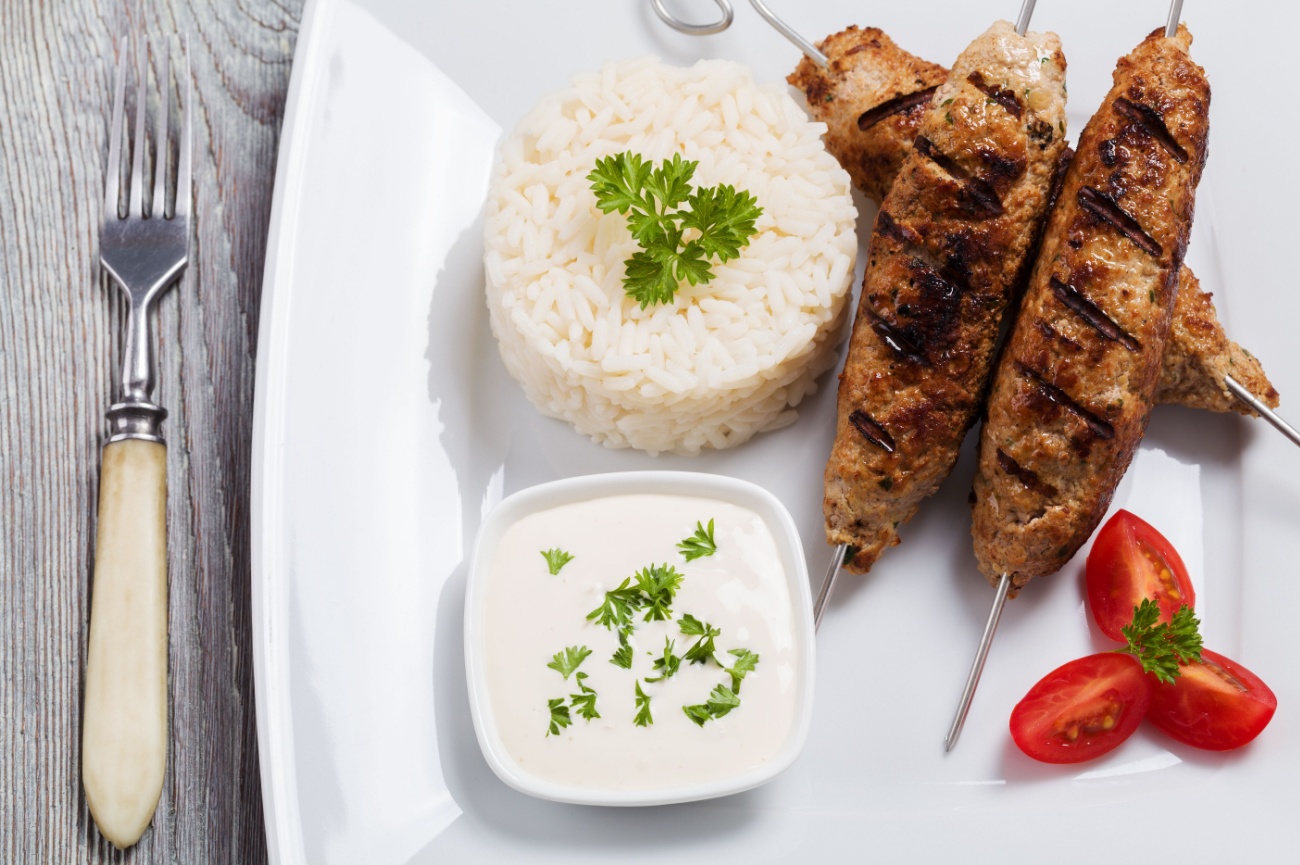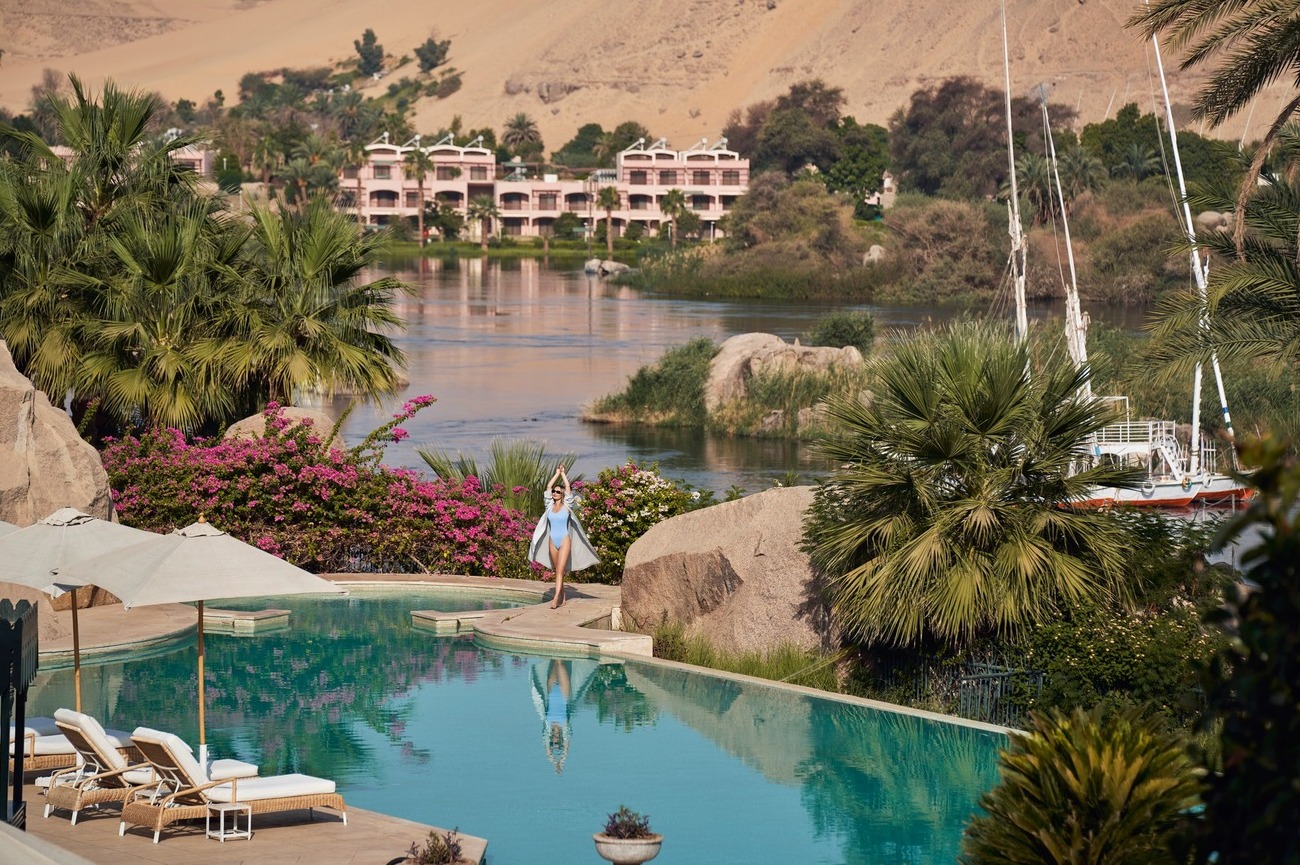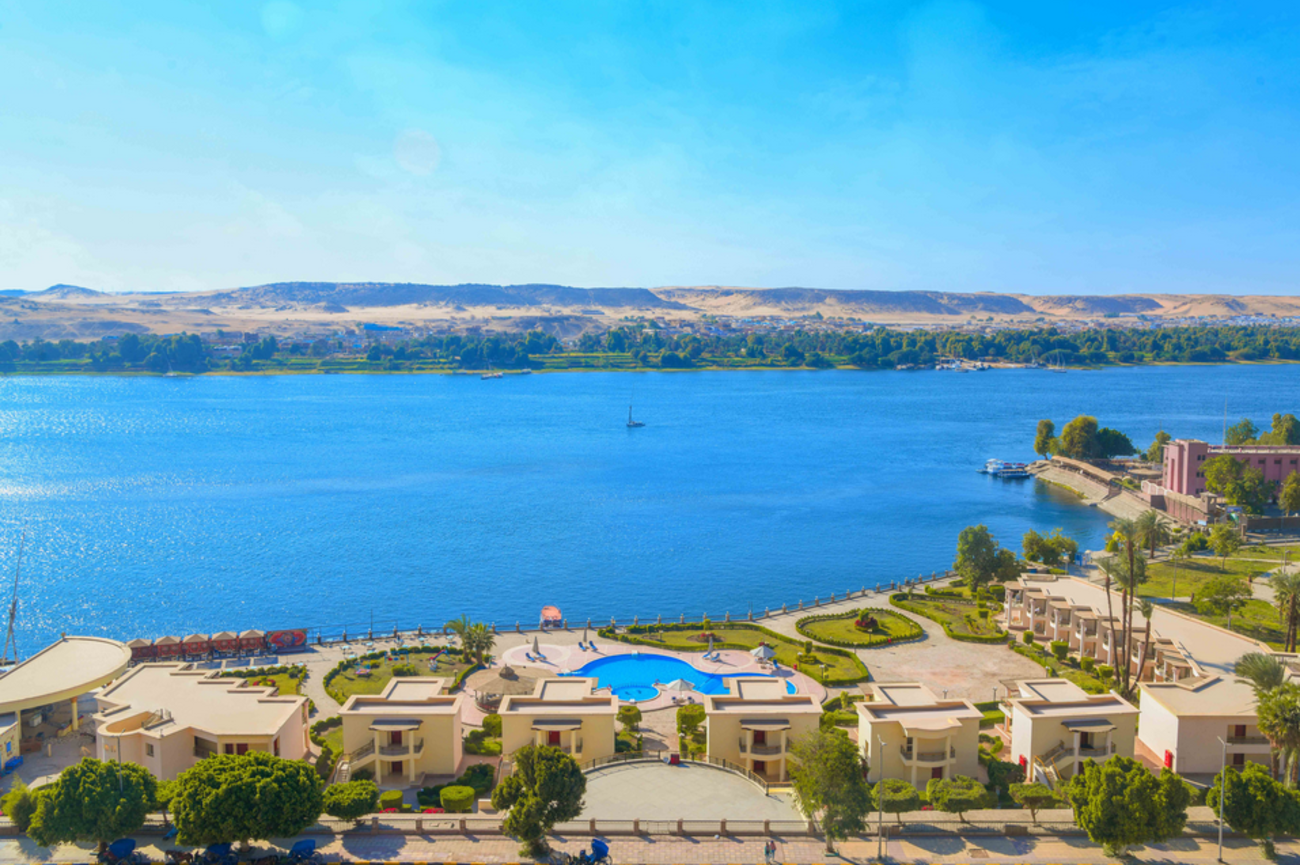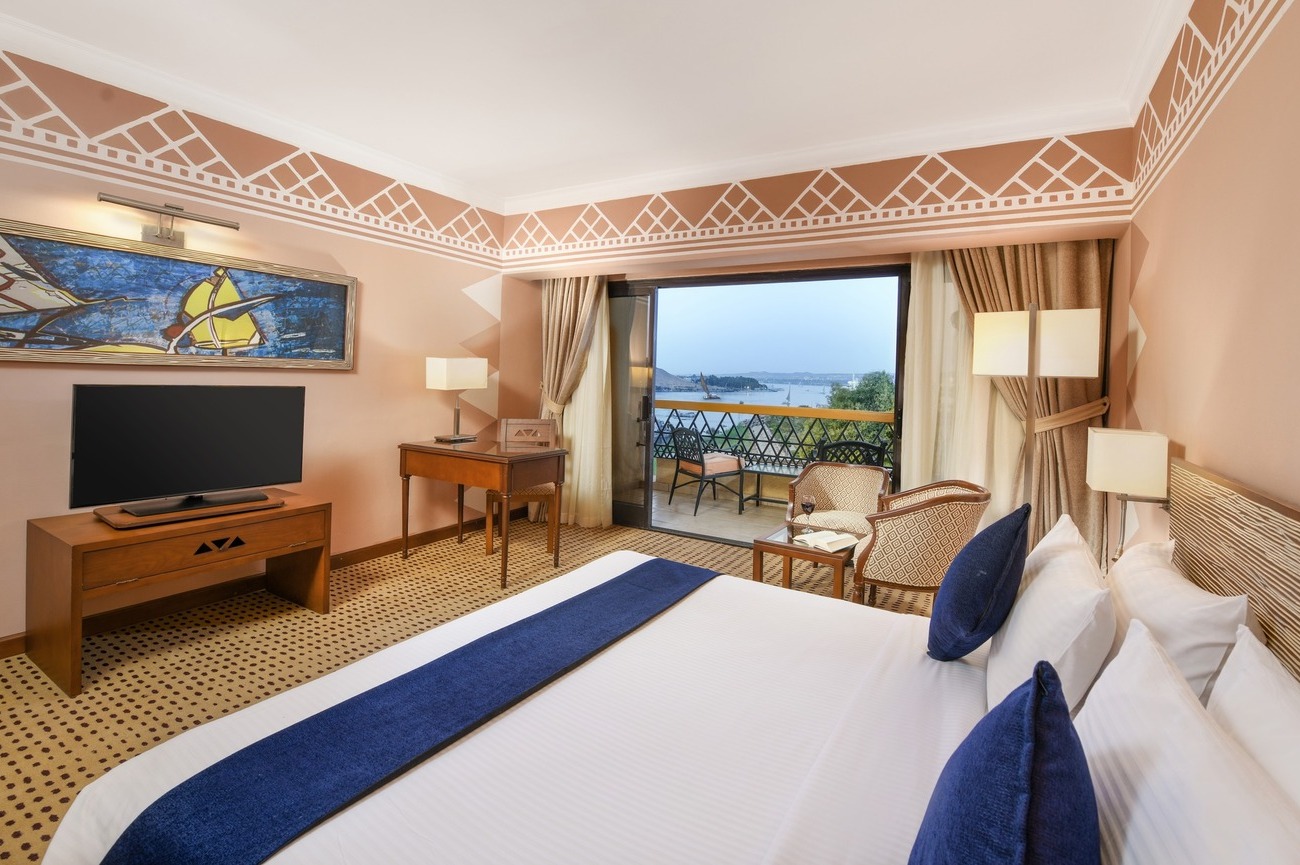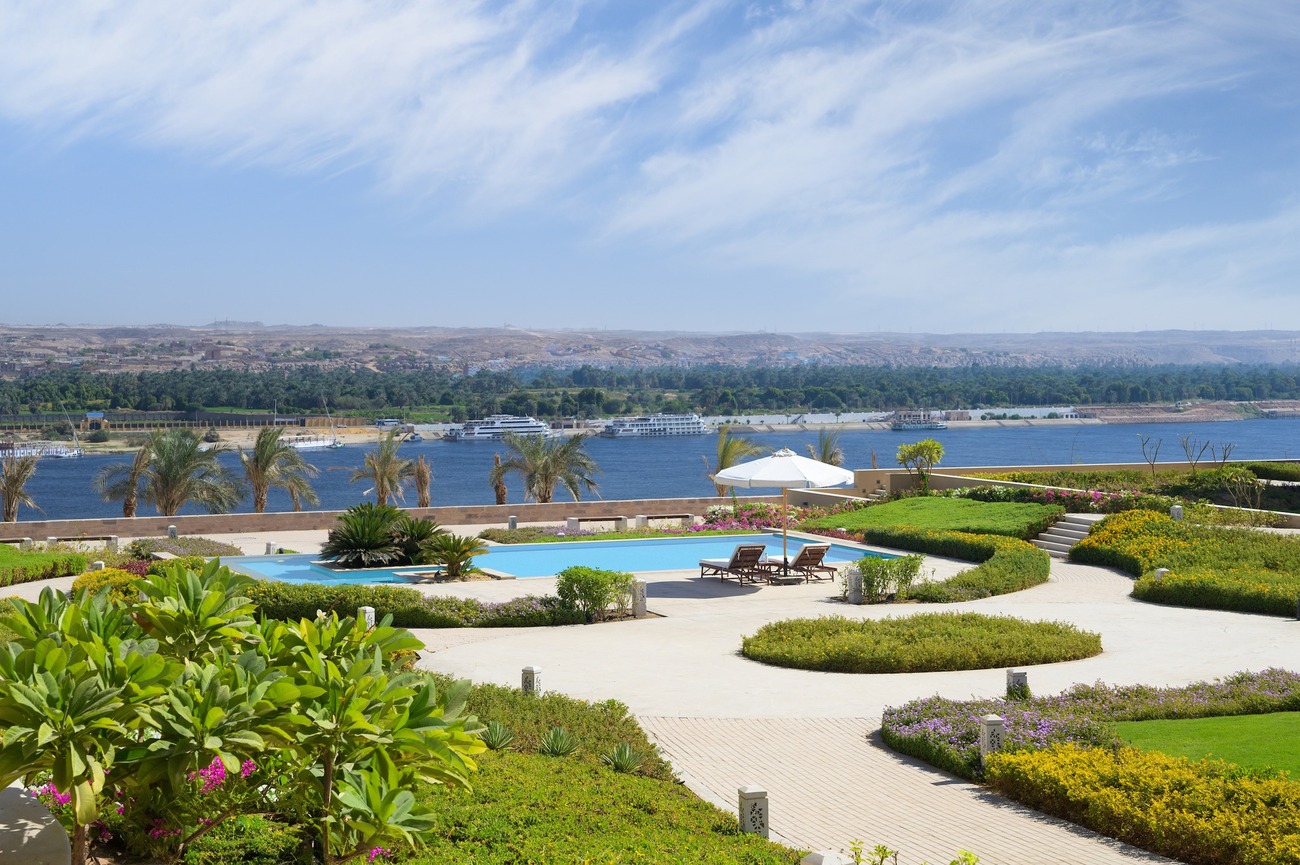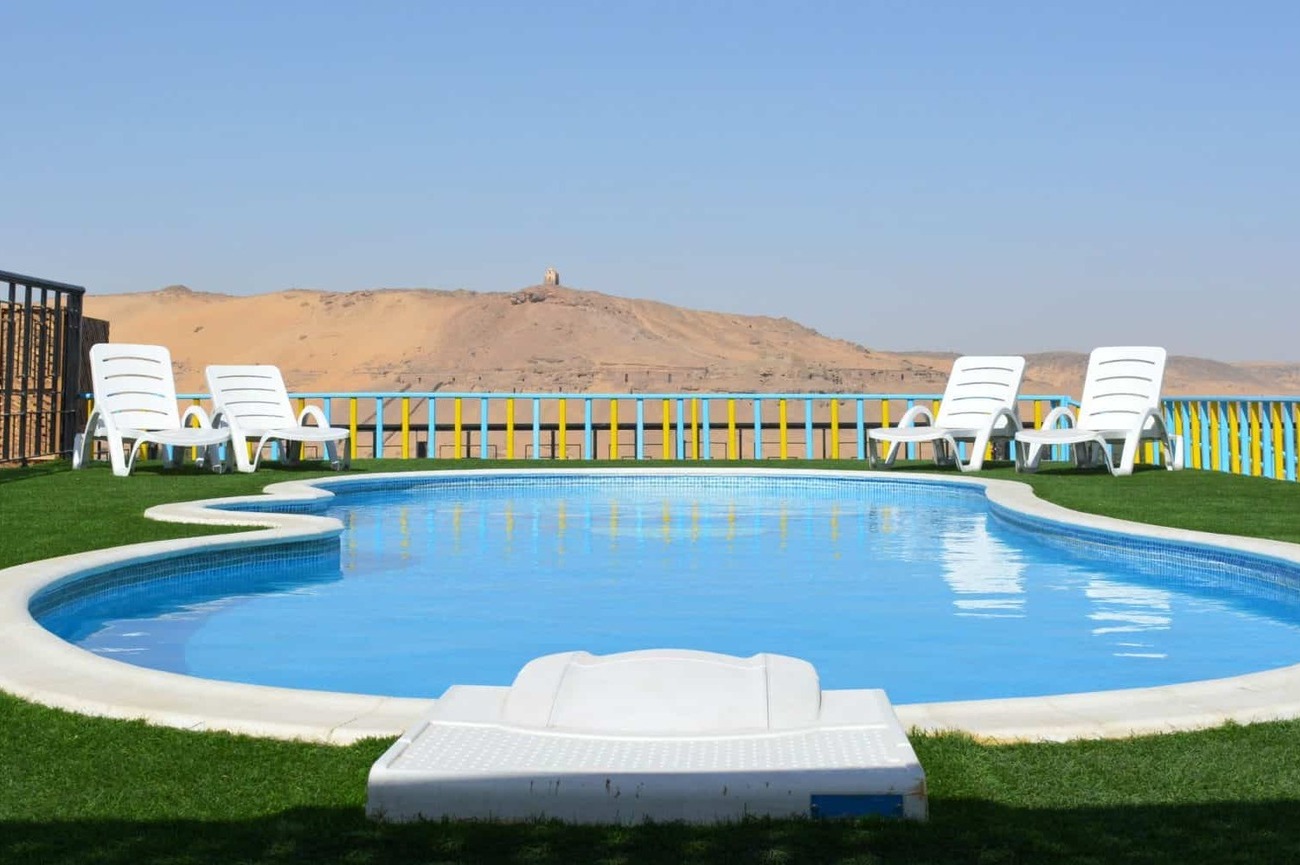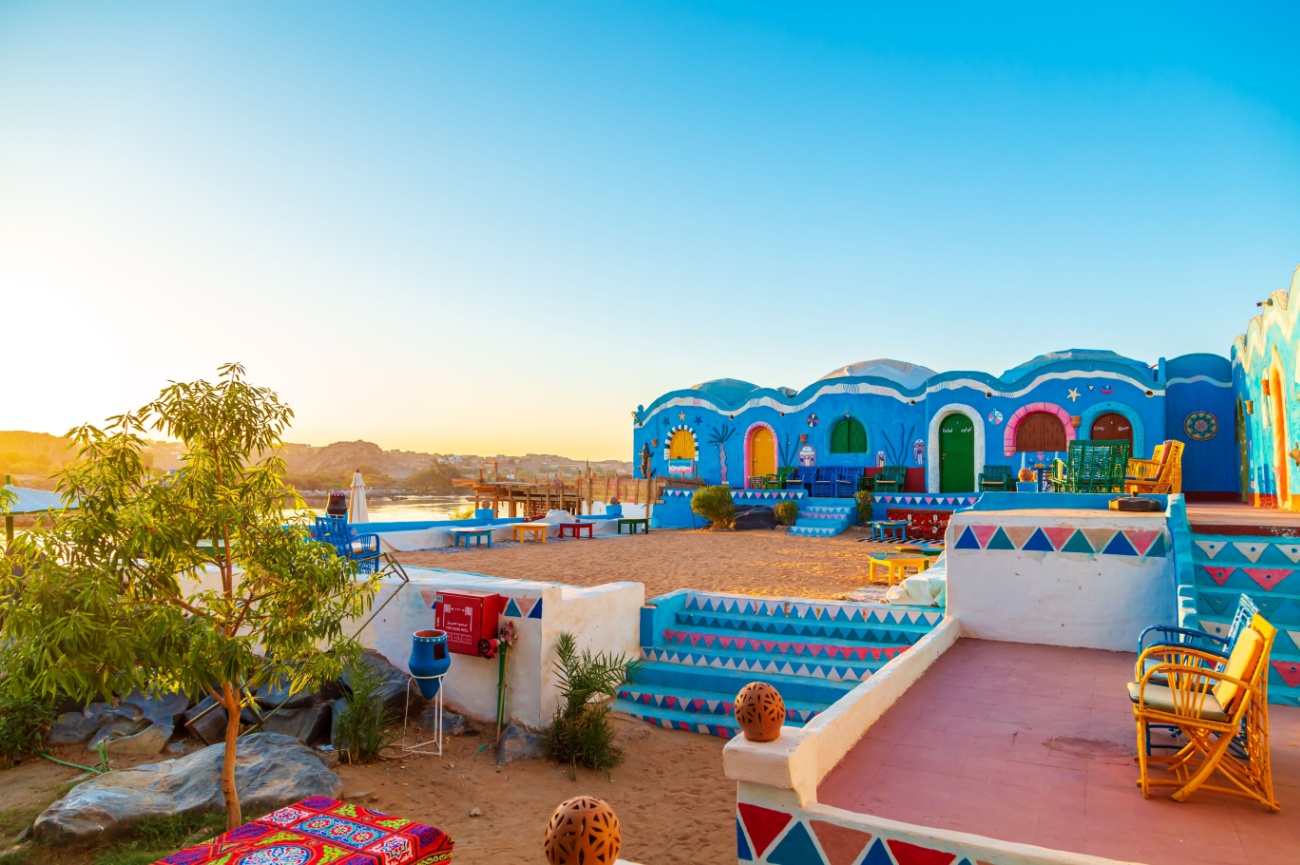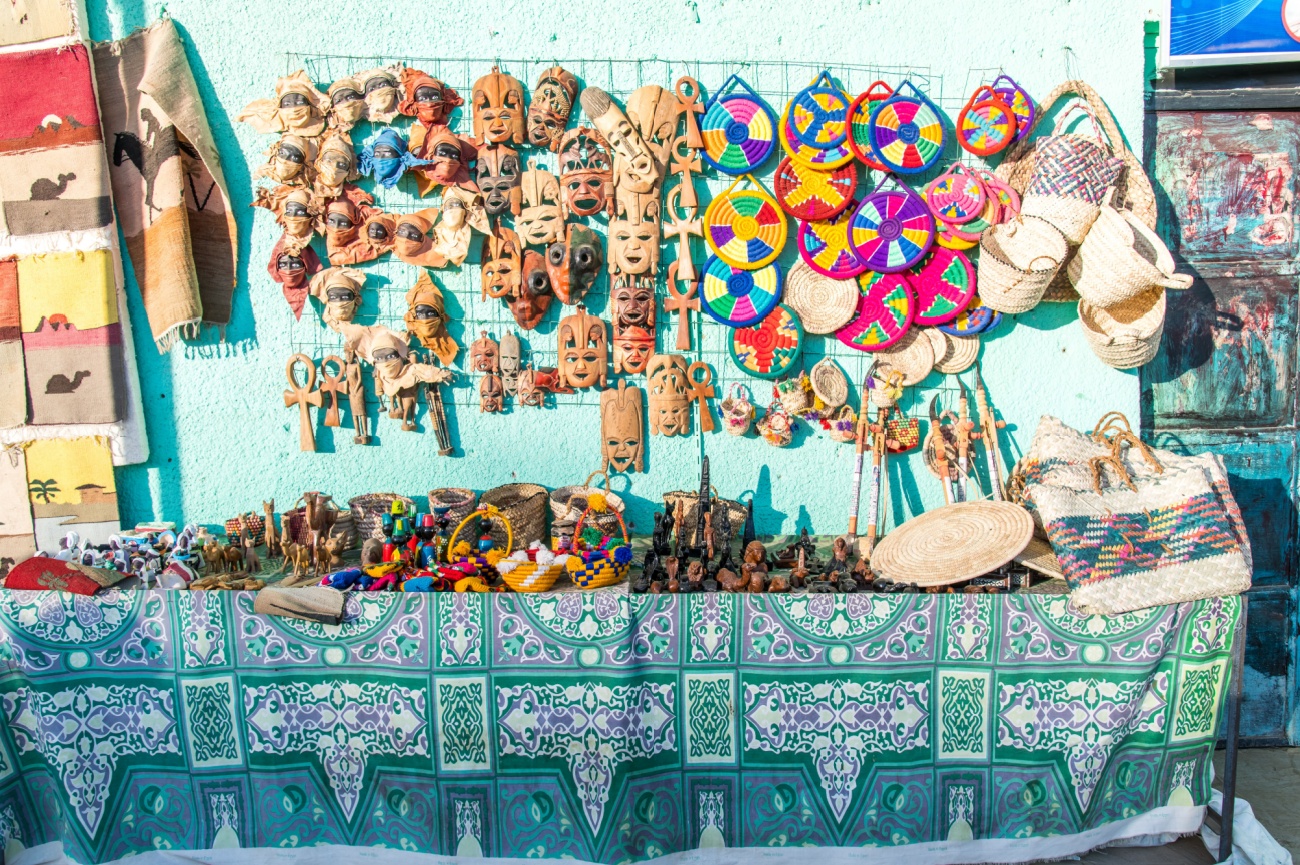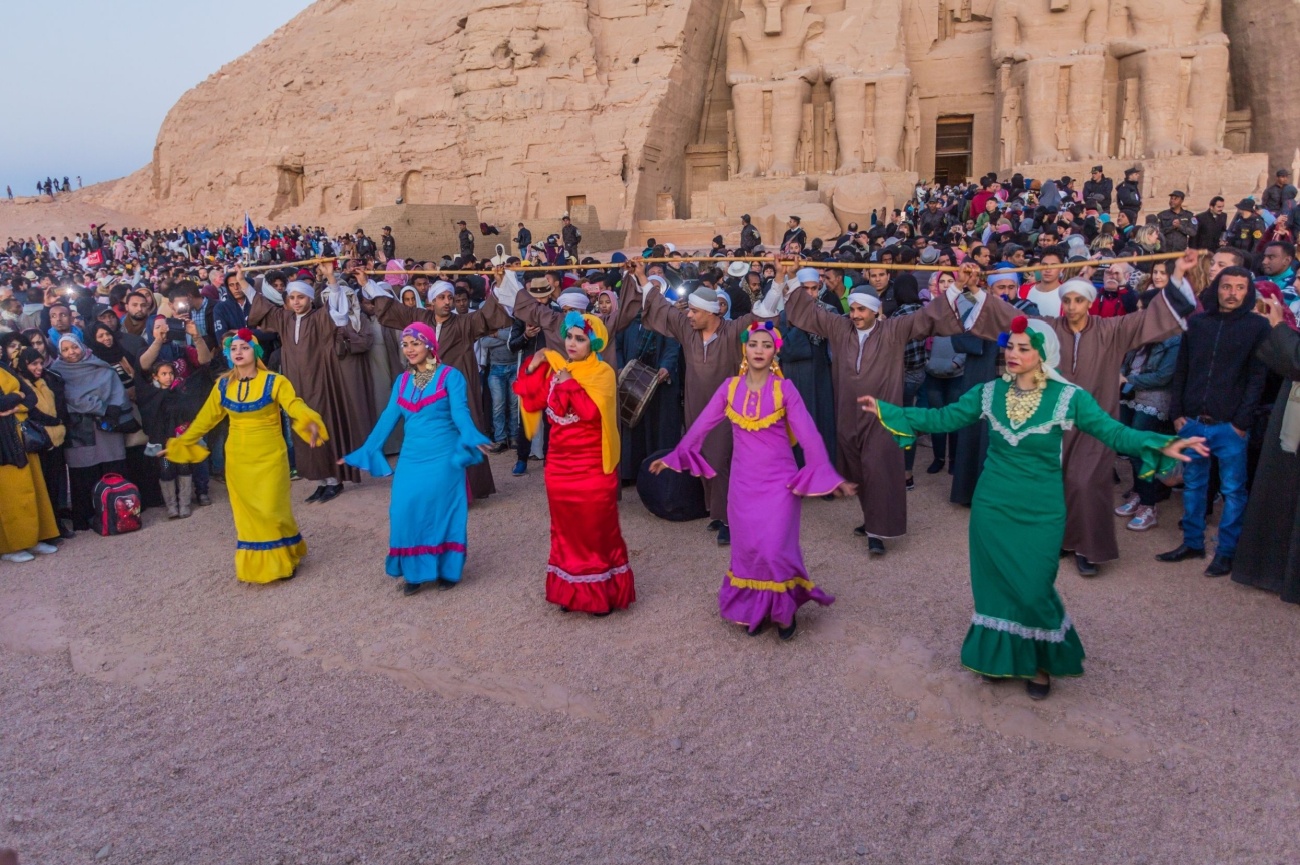Things to Do in Aswan: 1-Day Itinerary
A slow-paced town nestled on the Nile River in southern Egypt, Aswan feels more relaxed than Cairo and Alexandria. A bit off the tourist trail, it is a warm place packed with ancient ruins, museums, and majestic temples such as the island temple of Philae and the Temple of Khnum.
While the main part of the town is located on the mainland, many of Aswan’s tourist attractions can be found along the Nile River and on the islands. Hop aboard a felucca (traditional sailboat) and discover places such as Elephantine Island and its traditional Nubian villages, the Aswan Botanical Garden on Kitchener Island, and the Monastery of St. Simeon.
To help you plan your visit to this tranquil river town in Egypt, we’ve put together a 1-day travel itinerary that includes a list of the best things to do in Aswan, as well as recommendations on which restaurants to visit and hotels to stay in.
Day 1

Morning: The Unfinished Obelisk
Our first stop in the morning is an open-air museum with an unfinished obelisk which was abandoned back in the 18th century during the rule of Queen Hapshepsut. The funny thing is that if finished, this 42-metre-long obelisk would be the largest obelisk ever made. Some geologists say how it would’ve weighed nearly 1,100 tons. Unfortunately, the structure was not completed because of a crack in the granite. You can walk around the open-air site and imagine how the ancient Egyptians were building the obelisk.
Fatimid Cemetery
Located right in front of the Unfinished Obelisk, this historic Fatimid cemetery is one of the oldest Islamic burial grounds in the world. It was built somewhere between the 8th and the 12th century and houses many tombs from the Fatimid period. After the renovations in 2014, the cemetery is once again open to the public. You will notice well-marked paths, as well as plenty of information boards that explain the burial sites. If you see a tomb decorated with a flag, this means that the grave belongs to a local saint.
Nubian Museum
This enjoyable museum with a variety of ancient Egyptian artifacts representing various eras is a perfect place to learn about the history and culture of the Nubian people. Everything is nicely organized and the museum does a great job of explaining the exhibits in both English and Arabic. You will have a chance to see approximately 3,000 pieces of Egyptian antiquities from different eras (Coptic, Roman, Pharaonic). Don’t miss the huge pharaoh statue in the middle of the Nubian Museum. There is also a cool exhibit that tells the story of archaeologists and how they saved 2 nearby temples. You can walk through the entire museum in about less than two hours and get something from one of the two on-site gift shops. Perched on a hillside, the building itself looks amazing and has a lovely garden that you can explore after visiting the museum.
Feryal Garden
You will need to pay a small fee (10EGP) to enter the majestic Jardins Feryal Garden. With benches, ornamental lamps, shaded trees, and well-paved walkways, the park is beautiful. It is one of the best places in Aswan to enjoy panoramic views of the Nile River and the boats in the marina. It is also a good spot for families and children to play around. If you find the time, come back to the Feryal Garden later in the day for the most spectacular sunset views in the city.
Aswan Old Souks
No visit to the city is complete without stopping by the Aswan’s vibrant marketplace. Located in the downtown area, this long street is packed with local shops ranging from bakeries, butcher shops, and electronic stores to stalls selling Nubian baskets, musical instruments, glass art, confectionaries, and souvenirs. There is also a section where visitors will find spices, groceries, sweets, tea, and a popular local juice made from coconut called Zoobian. The marketplace is huge and stretches all the way from the Aswan city center to the train station.
Day 1, morning - Aswan Tour Map
Afternoon: Aswan Museum
A short ferry ride from the Aswan waterfront, Elephantine Island is one of the most popular areas among tourists. The island is small enough that you can easily walk anywhere. It is home to a few traditional Nubian villages and a temple complex. Your first stop on the Elephant Island is the Aswan Museum where you can see Egyptian and Roman artifacts rescued from the temples flooded by Lake Nasser. Although the main museum is closed for renovation, visit the small gallery to find artifacts in glass classes including pottery, mummies, utensils, and weapons.
Temple of Khnum
While the Temple of Khnum on Elephantine Island looks quite ordinary from the outside, you will be amazed by the beauty of its interiors. Dedicated to Khnum, the god of fertility and creation, it is a recently reopened temple after years of restoration. With mind-blowing paintwork, amazing details on the columns, and stunning pillars, the Temple of Khnum is definitely one of the most iconic monuments in Aswan.
Animalia
While exploring a Nubian village on Elephantine Island, you will stumble upon this cute family-run museum with a little souvenir shop. Animalia Museum tells the story of the daily life and culture of the Nubian people. During your visit, you will learn how woven baskets are made by Nubian women and how native trees provide shelter for the Nubian people. The museum consists of 4 rooms and houses everything from mummified animals and Islamic and Christian decorations and drawings to photo galleries. Guided tours (French/English) are run by the friendly owner Mohamed Sobhi and his family. There is also a small gift shop where visitors can purchase woven baskets and other Nubian crafts.
Bob Marley Moonlight Terrace Restaurant Café
Later in the afternoon, pay a visit to this magnificent café and restaurant overlooking the Nile River. With its cool reggae music, chilled ambiance, and breathtaking sunset views, Bob Marley Moonlight Terrace Restaurant café is one of the most popular cafes/restaurants on the island. In case you get hungry, order a pizza, aubergine, zucchini tagine, grilled meats, or something else from their extensive food menu. The café is also a part of a backpacker’s hostel, in case you wish to spend the night on the island.
Day 1, afternoon - aswan Tour Map
Other Things to See in Aswan
- Temple of Philae: Most people visit Aswan for an ancient Egyptian temple complex on Agilika Island, the Temple of Philae. Located just a short water taxi ride from Aswan, this floating architectural masterpiece consists of different monuments, shrines, and pylons. You can admire the beauty of intricate carvings or visit the site in the evening to see the famous light and sound show. We definitely recommend visiting the temple with a local guide who can tell you everything there is to know about the complex and its history.
- Monastery of St. Simeon: Hop on a boat ride on the Nile River to visit one of the largest Coptic monasteries in the country. After leaving the boat, visitors will have to hike a remote desert hill to reach the Monastery of St. Simeon. If the weather is too hot, you can also opt for an uphill camel ride. Founded in the 7th century, the Coptic Monastery is a place where monks used to live until the 13th century. They had to abandon the monastery because of water shortages. Today, you can see the ruins of rooms with brick beds, plenty of Coptic and Arabic inscriptions on the walls, and a beautiful courtyard.
- Aga Khan Mausoleum: Nestled atop the West Bank's cliff, the Aga Khan Mausoleum is home to the tomb of Sir Sultan Muhammad Shah who was the spiritual leader of a Shia Muslim group called the Ismaili. The pink limestone building itself looks impressive but is unfortunately close to the public. The only way you can go inside is to obtain an invitation from the Shia Aga Khan Ismaili Council family. However, you can always enjoy majestic views of this charming mausoleum from the Nile River.
- Nubian Villages: You will find many beautiful Nubian villages around the west bank of the Nile River and just a short drive from Aswan. For those who don’t know, this ethnic group is one of the world’s oldest civilizations. Visiting these authentic villages and their beautifully colored traditional houses in Aswan is a unique experience. You will find a number of Nubian villages close to Aswan. There are even a few local companies (Egypt Knight Tours, Aswan Tours, Egypt Lovely Tours) that organize guided tours. We recommend visiting Nubian Villages that remain under the tourist radar such as Nagel-Gulab and Nagaa Al Hamdlab.
- Tombs of the Nobles: Perched on the west bank of the Nile, the Tombs of the Nobles offer a fascinating glimpse into the lives of Aswan’s ancient elite. These rock-cut tombs, dating back to the Old and Middle Kingdoms, belonged to powerful governors, priests, and officials who once ruled the region. Intricate hieroglyphic inscriptions and colorful murals depict scenes of daily life, religious rituals, and voyages to distant lands, showcasing the importance of trade and diplomacy in ancient Egypt. The short but steep climb rewards visitors with breathtaking panoramic views over the Nile, making it one of Aswan’s most rewarding historical sites.
- Qubbet el-Hawa: Rising dramatically above the west bank of the Nile, Qubbet el-Hawa is a hilltop burial site known for both its archaeological significance and panoramic views of Aswan. The site, whose name means "Dome of the Wind," is home to tombs belonging to powerful officials and nobles who governed Nubia. At the summit, a small Islamic shrine stands, adding to the location's mystique. Though the climb is steep, the reward is an unforgettable view over Elephantine Island, the Nile, and the golden desert beyond. For those seeking history, adventure, and stunning landscapes, this is a must-visit spot in Aswan.
- Nubian Sand Dunes: For those looking to experience Aswan’s raw natural beauty, the Nubian Sand Dunes offer a breathtaking desert landscape along the west bank of the Nile. These towering golden dunes create a striking contrast against the deep blue waters, making them a favourite spot for photographers, adventure seekers, and those in search of tranquility. Visitors can ride camels, try sandboarding, or simply relax and watch the sunset transform the desert into a golden spectacle. The soft sand and gentle desert breeze make this a peaceful retreat away from Aswan’s historic sites.
- Coptic Orthodox Cathedral of the Archangel Michael: A key Christian landmark in Aswan, the Coptic Orthodox Cathedral of the Archangel Michael is a stunning modern place of worship that showcases Egypt’s deep-rooted religious heritage. Located near the Nile Corniche, the cathedral features impressive Coptic iconography, intricate woodwork, and towering domes, reflecting traditional Egyptian Christian architecture. Inside, visitors can admire beautiful frescoes and detailed carvings, all within an atmosphere of peace and reflection. A visit here offers a fascinating insight into Aswan’s diverse cultural and religious history.
- El-Tabia Mosque: Standing in the heart of Aswan, El-Tabia Mosque is one of the city’s most striking Islamic landmarks. Built in a classic Ottoman style, the mosque is recognisable by its elegant minarets, grand archways, and intricate geometric designs. Inside, the high domed ceilings and delicate patterns create a serene and spiritual ambiance. The mosque is set within a small green park, providing a peaceful retreat for both worshippers and visitors. Whether you come for prayer, architecture, or simply to soak in the tranquil surroundings, El-Tabia Mosque is a testament to Aswan’s rich Islamic heritage.
Day Trips from Aswan
- Abu Simbel Temples: If there is only one day trip you can do while staying in Aswan, book an excursion to the Abu Simbel Temples. Also known as the Twin Temples of Egypt, these two impressive monuments are located on the western bank of the Nile River. It takes about 3 to 4 hours by car to get from Aswan to the temples, so you should definitely leave early in the morning. The local authorities are not fans of tourists driving alone in the remote southern desert, so it is best to book one of the many day trip excursions to the Abu Simbel Temples. Once you get there, you will have an opportunity to stand in front of two massive temples carved out of the mountainside. The Great Temple is dedicated to Ramesses II by the ancient Egyptians, while the Small Temple is built to honor Queen Nefertari and the god Hathor.
- Temple of Kom Ombo: The easiest way to see this temple complex is by going on a cruise on the Nile River. One of the stops on the tour is one of the best-preserved monuments in all of Egypt, the Temple of Kom Ombo. With its detailed carvings, entrances, halls, and sanctuaries, the temple is a remarkable historical site. The entrance fee also includes a visit to a small museum where you will find approximately 300 mummified crocodiles. The Temple of Kom Ombo is located 45 kilometers from Aswan.
- Temple of Edfu: Combine your cruise river trip to the Temple of Kom Ombo with a visit to the Temple of Edfu, another Ptolemaic shrine built for the Egyptian falcon god, Horus. Nearly intact, this extraordinary masterpiece of ancient Egyptian architecture is a well-preserved complex that includes a temple with many rooms and chambers with hieroglyphs, as well as a beautiful courtyard that you can explore.
- Aswan High Dam: Built by Egyptian and Soviet engineers to stop the flooding of the Nile River and provide water and power to millions of people, the majestic High Dam is one of the most impressive sites in the region. Take a guided tour of the dam and learn everything there is to know about the history of this marvel of engineering. Visitors can also hop a cable car to the observation ring to enjoy magnificent views of the area.
- Lake Nasser and Temple of Kalabsha: Just south of the High Dam is one of the world’s largest manmade lakes, Lake Naser. There are cruises that take passengers around the lake, as well as locals with motorboats who can show you around. One of the most famous sites in the area is a temple designed to honor the Nubian solar god, Mandulis. The Temple of Kalabsha is definitely one of the best-hidden gems because of its remote location on a small island in Lake Nasser. Within the temple, you will find a few lovely chapels, a sanctuary, an open-air forecourt, and a columned hall. You can marvel at the beautifully decorated columns and ceilings inside the temple. For breathtaking views of Lake Nasser and the High Dam, climb the stairs from one of the chambers to the roof.
- Famine Stele Carving on Sehel Island: A short boat ride from Aswan, Sehel Island is home to one of Egypt’s most intriguing inscriptions—the Famine Stele. Carved into a large granite boulder, this ancient Ptolemaic text tells the story of a seven-year famine that struck Egypt during the reign of Pharaoh Djoser. The inscription details how the king sought guidance from the god Khnum, believed to control the Nile’s floodwaters, to bring prosperity back to the land. The site is a hidden gem, surrounded by other pharaonic inscriptions and hieroglyphic graffiti, offering a peaceful setting away from Aswan’s busier attractions. Approx. 5 km from Aswan.
- Crocodile Museum: Next to the Temple of Kom Ombo, the Crocodile Museum sheds light on Egypt’s fascinating relationship with sacred crocodiles. The ancient Egyptians worshipped Sobek, the crocodile-headed deity, who was believed to control the Nile’s waters and protect people. Inside the museum, visitors will find mummified crocodiles, crocodile coffins, and intricate carvings depicting Sobek. Some of these crocodiles were embalmed over 2,000 years ago, offering a unique glimpse into ancient religious rituals. A visit here adds another layer to the Kom Ombo experience, making it a worthwhile stop on a day trip from Aswan. Approx. 45 km from Aswan, in Kom Ombo.
- Tombs of El Kab: Located along the east bank of the Nile, El Kab is one of Egypt’s oldest yet least-visited archaeological sites. This necropolis of high-ranking officials, warriors, and nobles dates back to the New Kingdom (1550–1070 BC) and features impressively well-preserved tombs. The walls are adorned with detailed carvings and hieroglyphs, depicting daily life, military victories, and religious ceremonies. Notable tombs include those of Ahmose, son of Ebana, a famous admiral, and Paheri, a respected city governor. Unlike the more crowded sites in Luxor, El Kab offers a peaceful and immersive experience, allowing visitors to admire ancient artistry in solitude. Approx. 80 km north of Aswan.
Things to Do with Kids in Aswan
- Felucca Boat Ride: If you are looking for things to do with your kids in Aswan, we recommend a boat ride on a traditional felucca sailing vessel. This wooden sailboat with a triangular shape is completely maneuvered by hand. It may be slower than your typical motorboat, but you will have an opportunity to explore different islands along the Nile River at your own pace and enjoy scenic views.
- Aswan Botanical Garden (Kitchener Island): Take a felucca boat ride on the Nile River to this tiny island. Also known as El Nabatat, Kitchener Island is home to an exotic botanical garden founded by Lord Kitchener. Consul-General Kitchener built a house here and decided to transform the island into a large botanical garden by collecting exotic plants from all over the world. Your kids can walk along a pathway paved with pink granite and see 30 varieties of palm trees, as well as Royal and Sabal varieties and many aromatic plants.
- ASWAN Plaza Hotel And Mall: Visit this wonderful shopping mall in Aswan with your kids. Spread across three floors, the ASWAN Plaza Hotel and Mall is home to many Egyptian boutiques where you can purchase clothes, kids' toys, Egyptian handicrafts, and souvenirs to take back home. On the upper floor, you will find a nice cafeteria for refreshing drinks and reasonably priced food.
Where to Eat in Aswan
- 1902 Restaurant: Located within the historical Sofitel Old Cataract Hotel, 1902 Restaurant is the most popular restaurant for a high-end dining experience in Aswan. A soaring oriental-style stained glass ceiling, elegant white tablecloths, and an Arabian dome make this fabulous restaurant a classy place where most guests dress to the nines. It’s all about French and European-inspired cuisine here at 1902 Restaurant. Start with sea scallops marinated in Verbena oil, breadsticks, and caviar. You can also try their delicious French onion soup. For mains, we recommend grilled lamb chops with herbs de Provence or carpaccio of salmon and pineapple marinated with dill and citrus juice. If there is some space left for dessert, you won’t go wrong with their Morello soft chocolate with orange and coriander sauce and vanilla ice cream. The restaurant also offers an extensive wine selection.
- Al Dokka: If you wish to try authentic Egyptian cuisine and enjoy river views, make a reservation at this lovely restaurant. Al Dokka is located on a small island, but they do offer a complimentary ferry for their guests. The journey takes about five minutes. The restaurant itself is beautiful with nice decorations and big windows for magnificent views of the Nile River. The menu is packed with classic Egyptian dishes such as grilled kofta, oriental kakab hala, and grilled veal. If you prefer fish/seafood, go for the signature Al Dokka seafood plate served with rice or order grilled fish.
- Nubian Dream Restaurant & Café: Visitors will need a boat ride to reach this lovely restaurant located on Elephantine Island. You will be dining right on the water’s edge at Nubian Dream Restaurant & Café and can enjoy views of the Nile River. The owner, Mr Mahmoud is super friendly and always more than happy to assist with your order. As for the menu, expect to find Egyptian dishes such as grilled beef, fish tagine, camel tagine, stuffed pigeon, and vegetable soup. Mahmoud also runs a guesthouse nearby in case you wish to spend the night on the lovely Elephantine Island.
- Panorama Restaurant & Bar: Situated within the elegant 5-star Movenpick Aswan resort, Panorama Restaurant & Bar is a fine dining establishment known for its romantic ambiance, delicious food, and swift service. The menu is extensive with plenty of Egyptian and European dishes including crusted lamb, seafood soup, duck, and veggie penne. The restaurant is located on the 13th floor and offers enchanting views of the river through the floor-to-ceiling windows.
- El Masry: Travelers searching for a traditional old-school restaurant to savor Egyptian cuisine in downtown Aswan can visit El Masry. This family-run restaurant has a simple décor and offers authentic local Egyptian delicacies including kofta, lamb kebab, lentil soup, grilled chicken, and molkhya. To sample a bit of everything, go for their signature mix grill. For something more refreshing, we recommend the banana & date smoothie. We should probably mention that El Masry is a cash-only type of restaurant.
- Makka Restaurant: Another casual eatery in downtown Aswan popular among locals, Makka is all about reasonably priced Egyptian dishes. Dating back to 1962, it is one of the oldest restaurants in this part of the city. Satisfy your taste buds with a wide range of Middle Eastern foods such as mouthwatering kofta, grilled kebabs/liver veal chops, and stuffed pigeon. The restaurant is also known for its wide selection of hearty soups ranging from tomato soup and chicken cream soup to onion soup and minestrone. Don’t leave Makka before trying their cream caramel pudding.
Where to Stay in Aswan
- Sofitel Legend Old Cataract Aswan: Wish to stay in a historical hotel where the British world-famous author Agatha Christie wrote her novel “Death on the Nile? The Old Cataract Hotel was also used as a filming location for the movie made out of the book back in the 1970s. Back in the day, the hotel welcomed many famous guests including Princess Diana and Tsar Nicholas II. Nowadays, the property is known as the Sofitel Legend Old Cataract Aswan. Situated inside an old colonial building, this luxurious 5-star hotel boasts elegant rooms and suites and offers both an indoor and outdoor pool. Guests can relax in the sauna, work out in the fitness center, and dine at one of the four on-site restaurants. Did we mention that the hotel offers majestic views of the Nile River?
- Tolip Aswan Hotel: Located in downtown Aswan, this posh 5-star hotel is all about luxury and epic views of the river from the outdoor swimming pool. Rooms and bright and spacious and come with a private balcony. There is also a nice fitness center and plenty of entertainment facilities including a bowling alley, cinema, and table tennis. After a day of sightseeing in Aswan, visit the hotel’s spa center which offers massage treatments, a steam bath, and a sauna.
- Movenpick Resort Aswan (Splurge): If you wish to stay on the charming Elephantine Island, we definitely recommend booking your stay at the 5-star Movenpick Resort Aswan. From picturesque gardens with a fish pond and fruit trees and a few excellent on-site restaurants to a swimming pool and three bars with views of the Tombs of the Nobles, this property has everything you need for a relaxing stay on the island.
- The Zen Wellness Resort: Travelers interested in wellness treatments should consider staying at the Zen Wellness Resort in Aswan. The property is spread across three floors and offers spacious private villas. Most guests stay here for the wellness facilities which are plentiful. Whether you wish to practice yoga and pilates, attend fitness classes, or enjoy meditation and health workshops, there is definitely something for everyone. The hotel also offers a 4-day wellbeing and health program to its guests.
- Citymax Hotel Aswan: The next property on our list of recommendations on where to stay in Aswan is nestled on the banks of the Nile River. Rooms and suites at the Citymax Hotel Aswan are furnished to the highest standard, while the on-site restaurant focuses on mouthwatering Middle Eastern cuisine. Guests have access to free parking, a majestic rooftop swimming pool, and a sauna. The hotel is actually located on the top floor of a shopping mall and is known for its views of the river.
- Dolty Kato Nubian House: Travelers searching for more authentic and traditional accommodation can book a room at the Dolty Kato Nubain House. Surrounded by green palms, flowers, and plants, this eco-friendly property is nestled on the hillside of a Nubian village and. You can choose between 32 tastefully decorated rooms, each telling a story of Ancient Egypt. The on-site dining room focuses on healthy foods prepared with fresh veggies from the on-site organic farm.
Best Time to Visit Aswan
To enjoy low prices for accommodation and fewer crowds, visit Aswan in the summer from June to September. However, the summer months can get very hot with temperatures rising about 42°C, which makes it quite unpleasant to visit the city’s temples and go island-hopping. Therefore, we believe that the best time to visit Aswan is during the winter season which runs from November to February. During this time of year, you can expect temperatures around 25°C. It is an ideal time for exploring the historical sites and enjoying outdoor activities.
Aswan Festivals
- Aswan International Festival of Art and Culture: Organized by the Ministry of Culture and the city itself, this annual festival is held every year in February and October. The festival gathers nearly 300 artists and hosts spectacular folklore performances. You will have an opportunity to see more than 20 folklore groups performing across 14 different locations in and around the city such as Kom Ombo, Kalabsha, and Edfu. A unique astronomical phenomenon when the sun aligns with one of the temples in Aswan marks the end of the festival.

